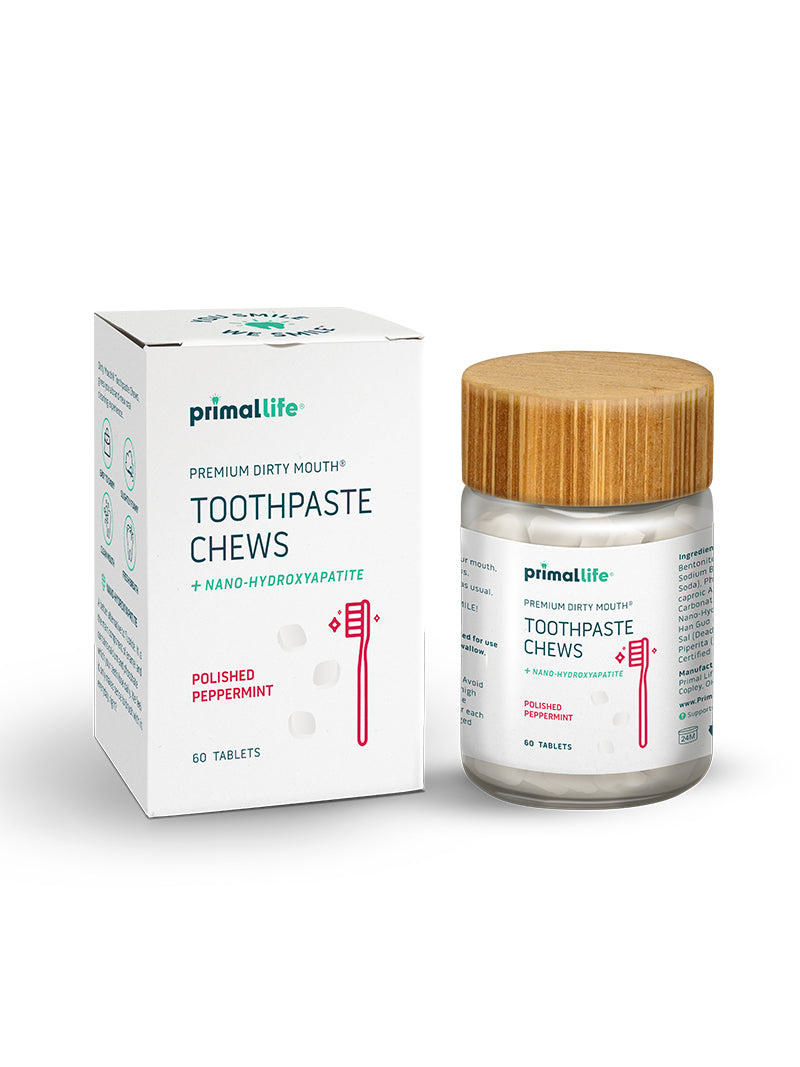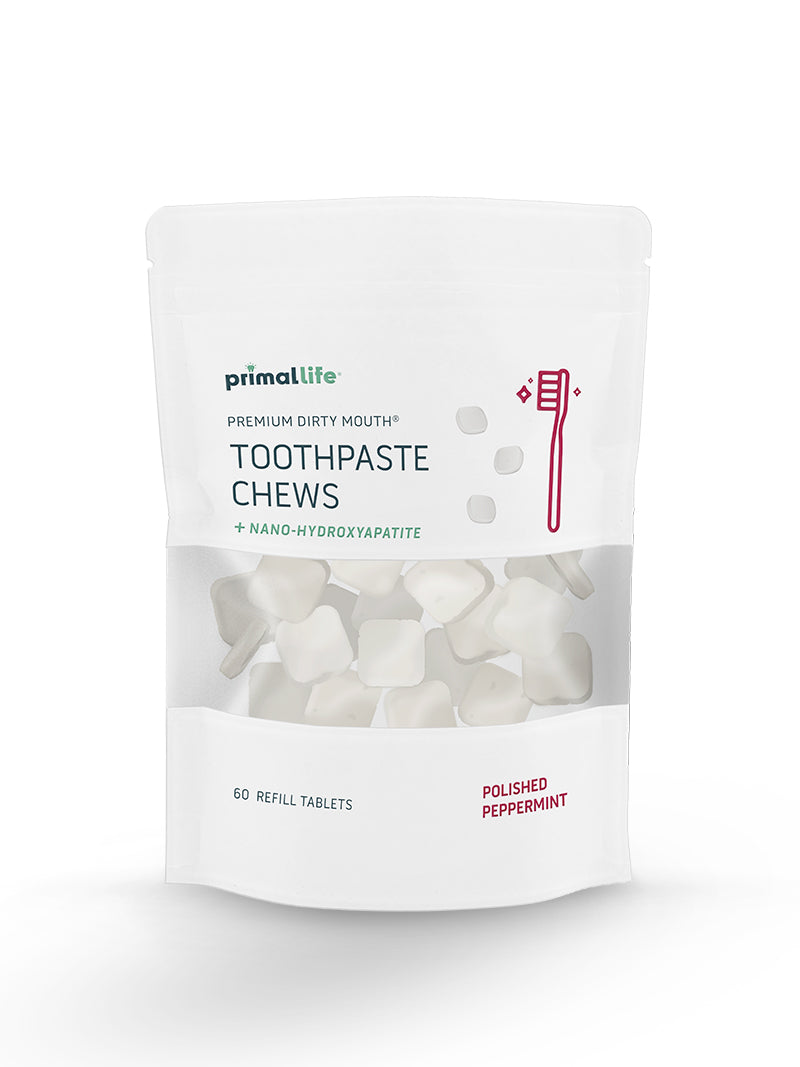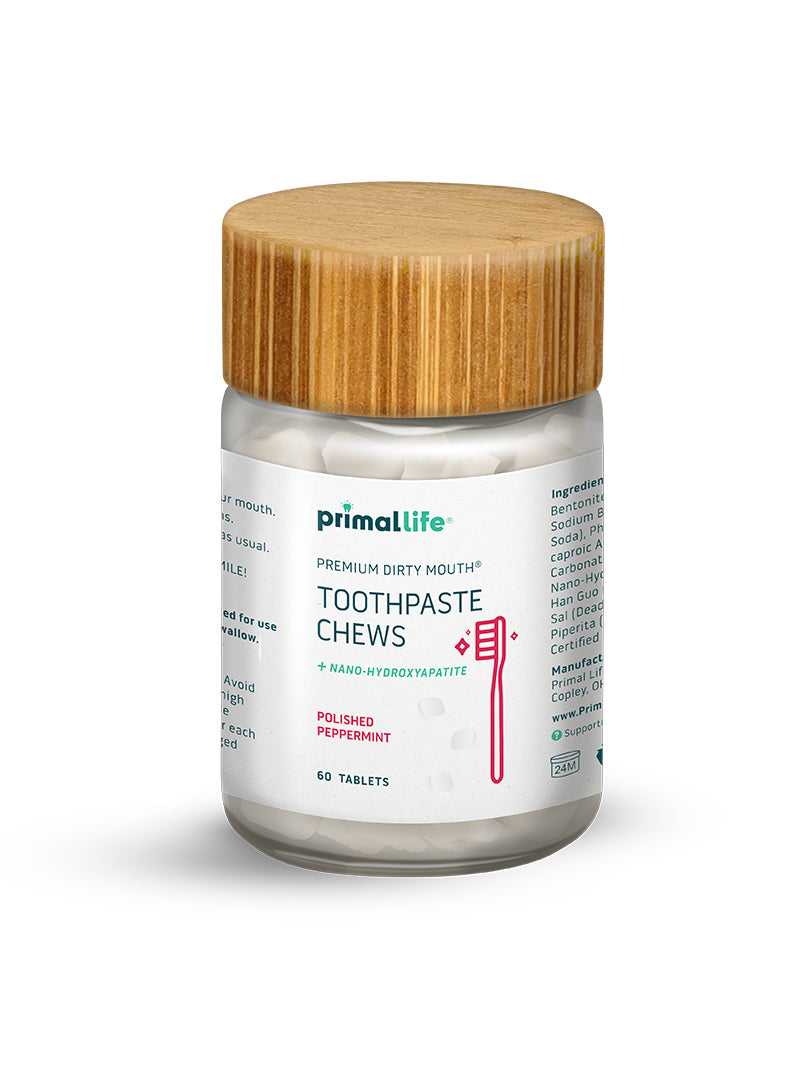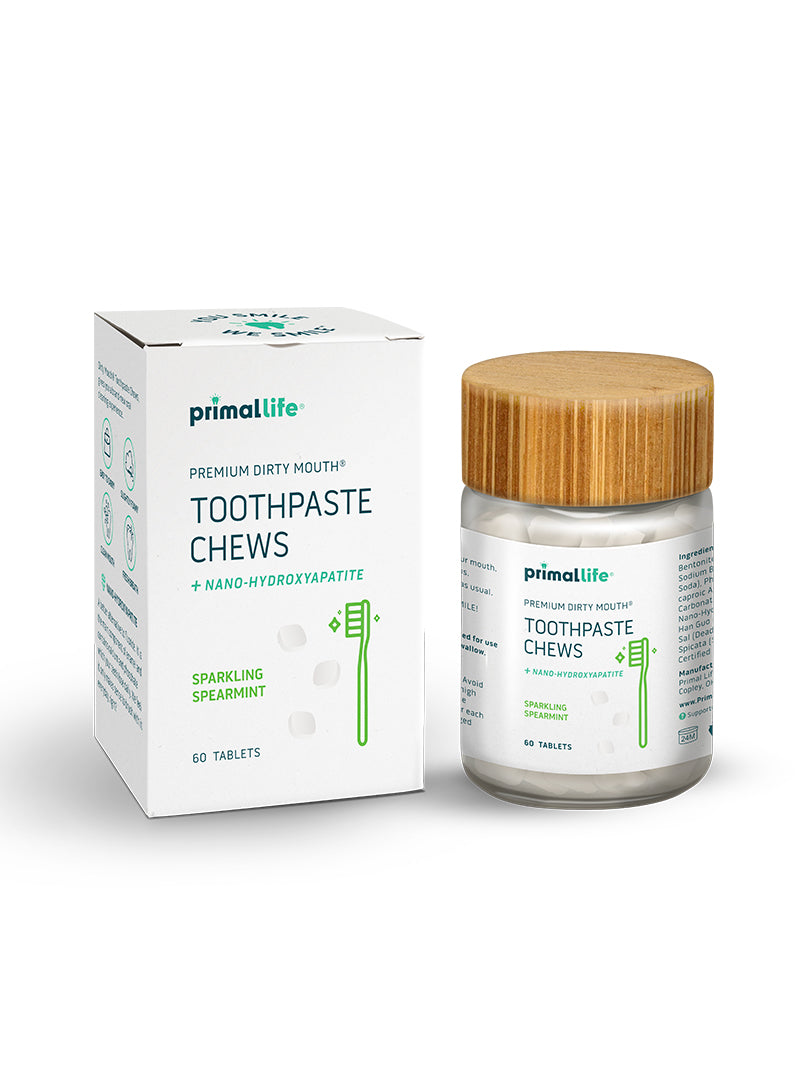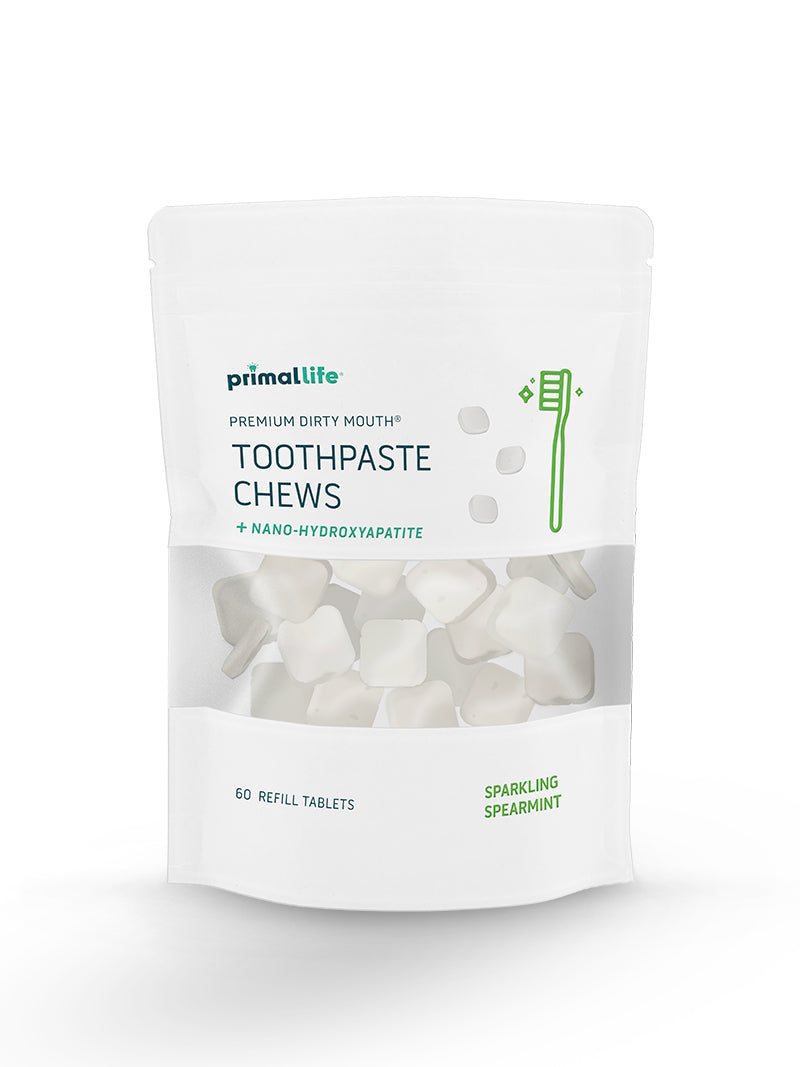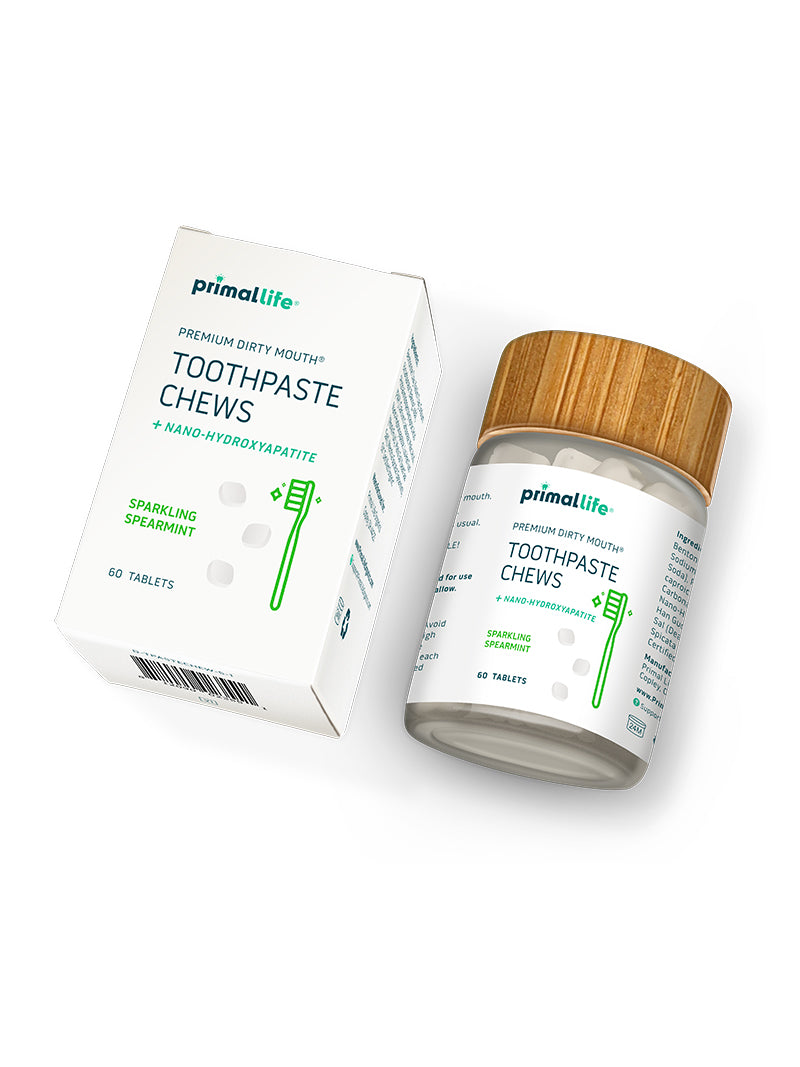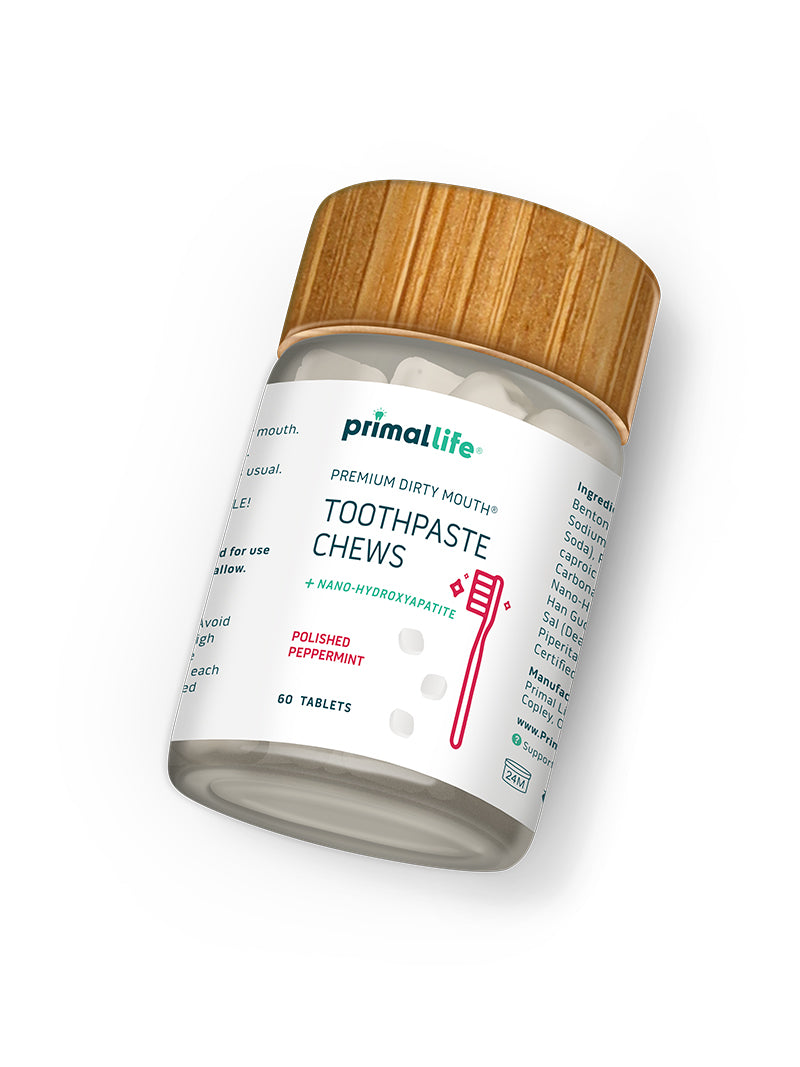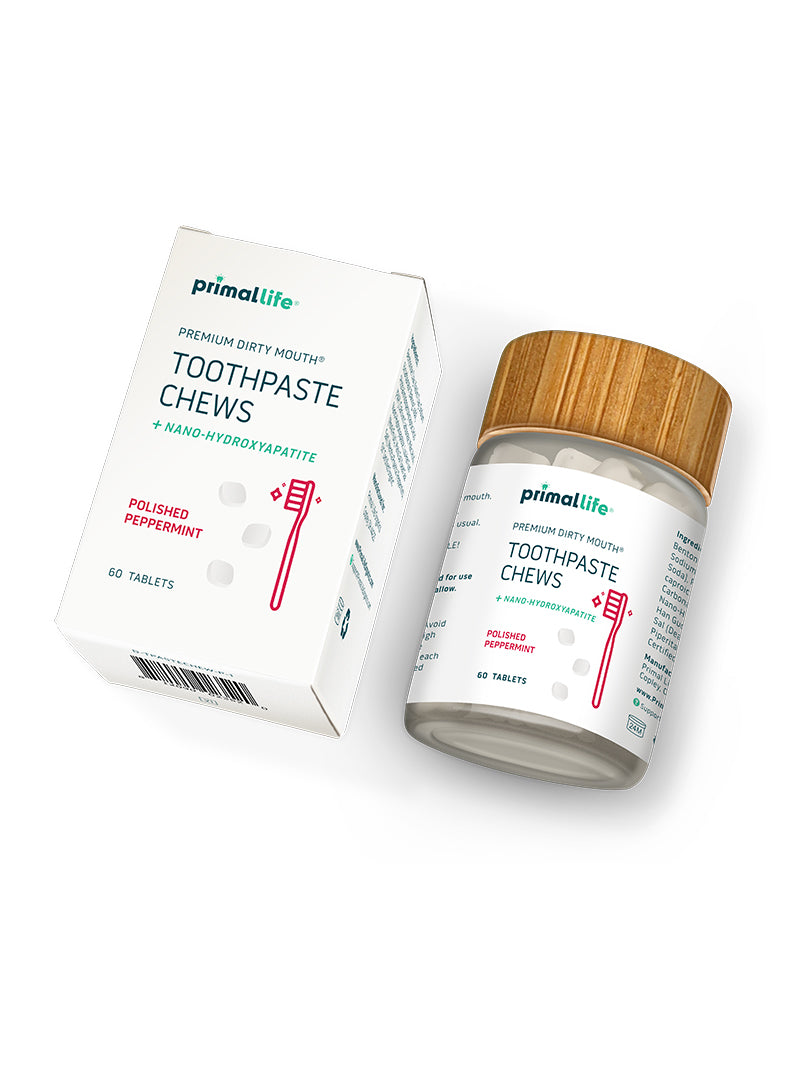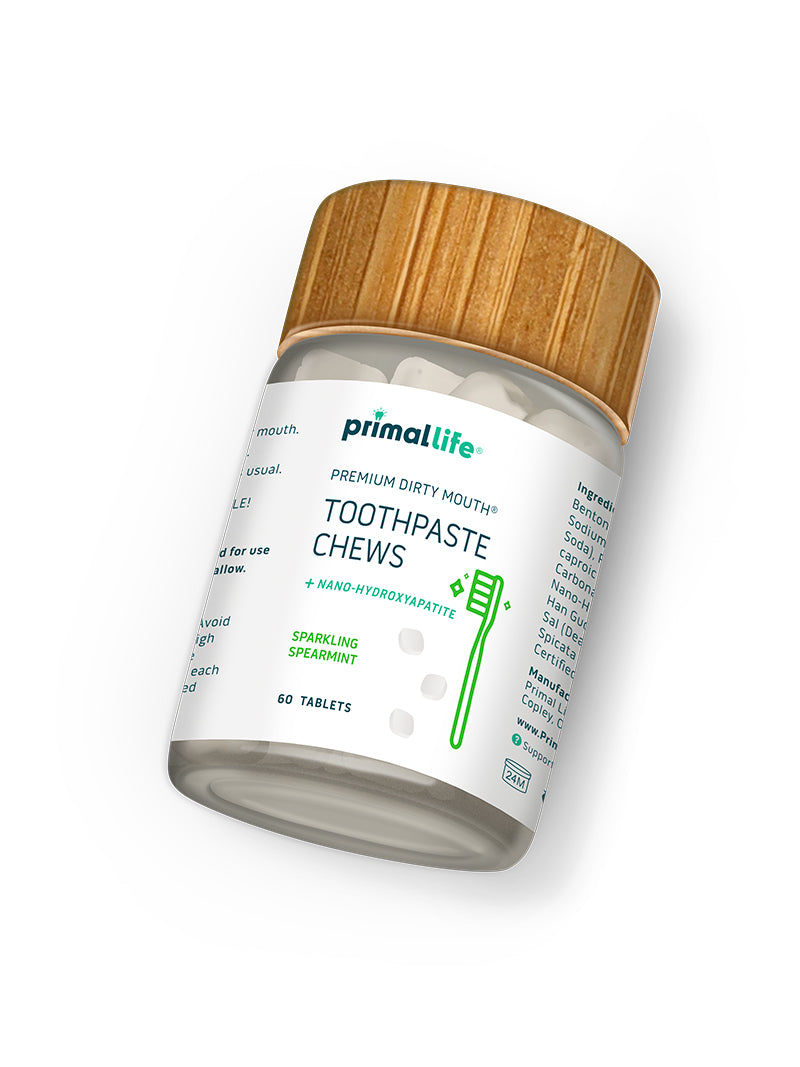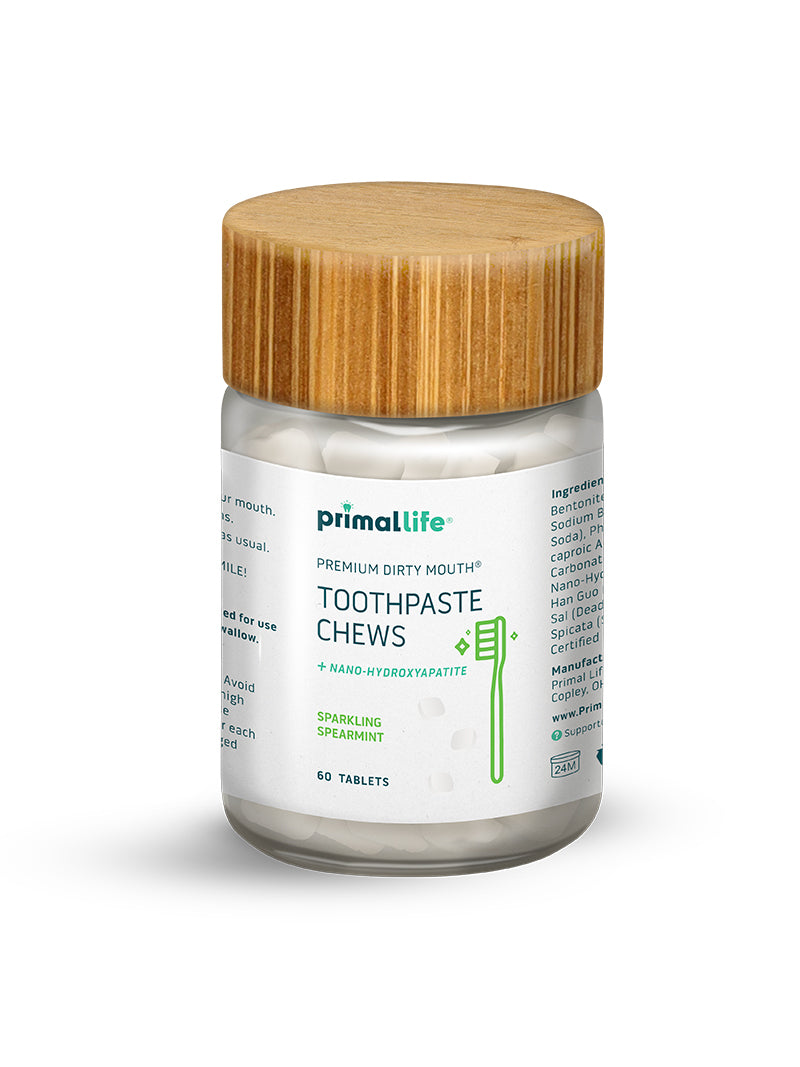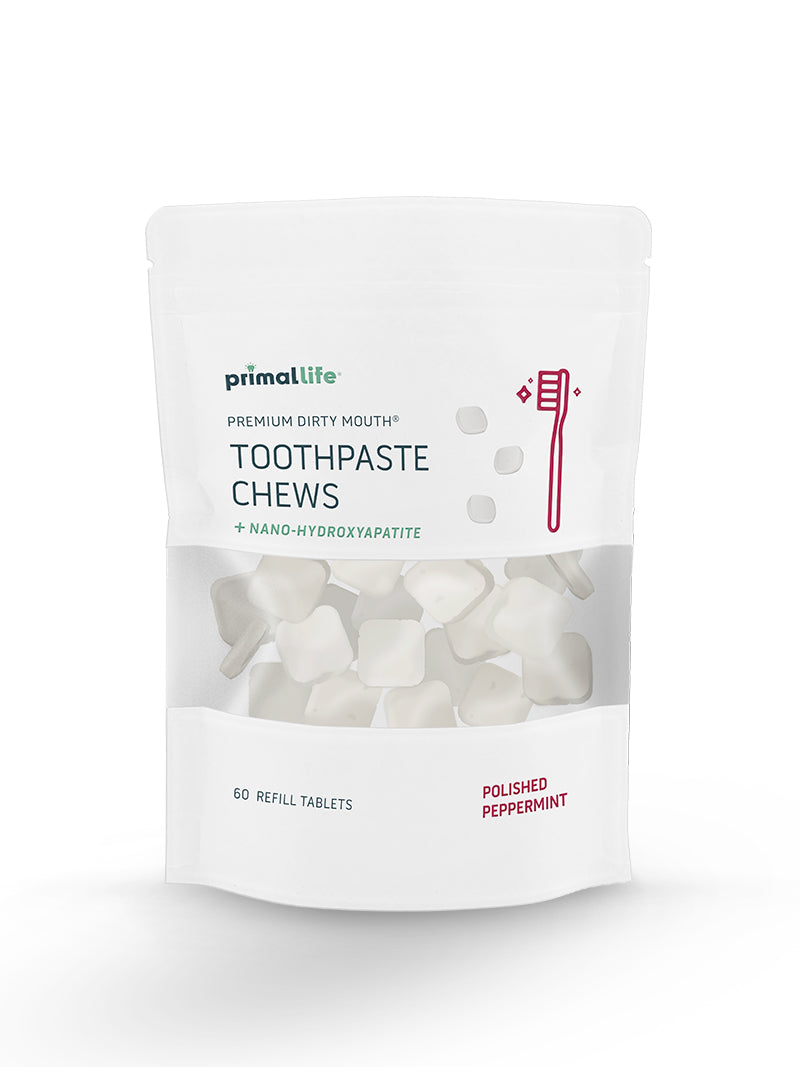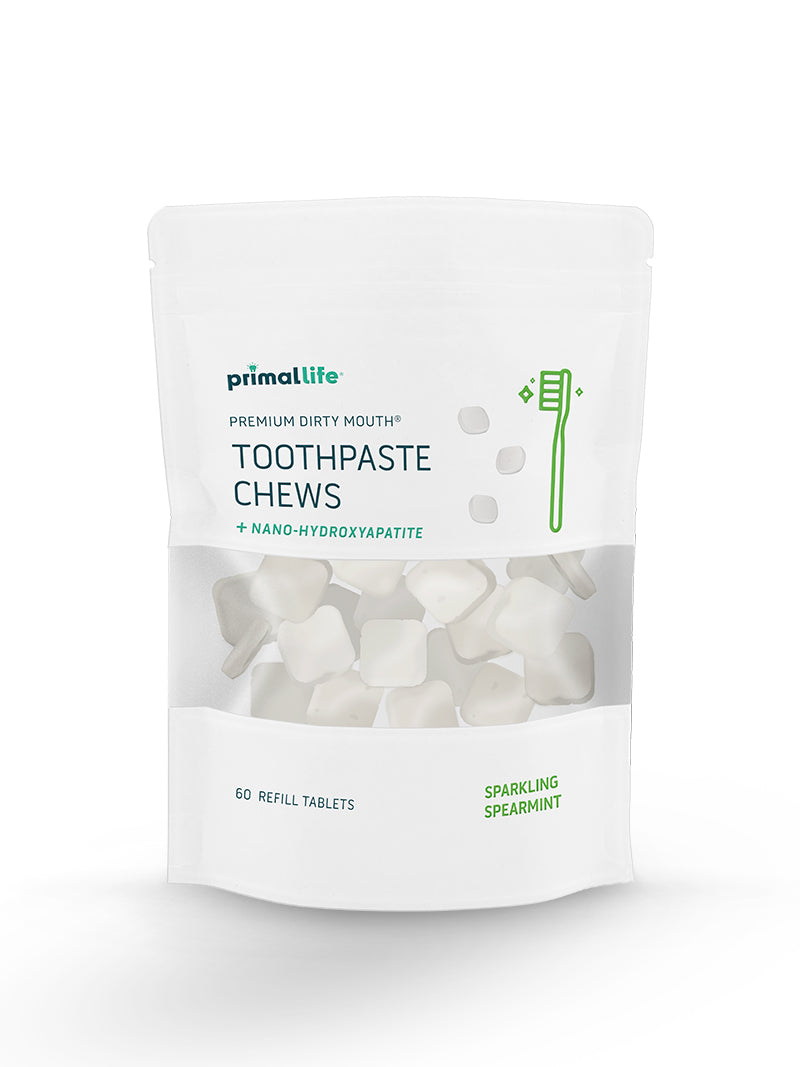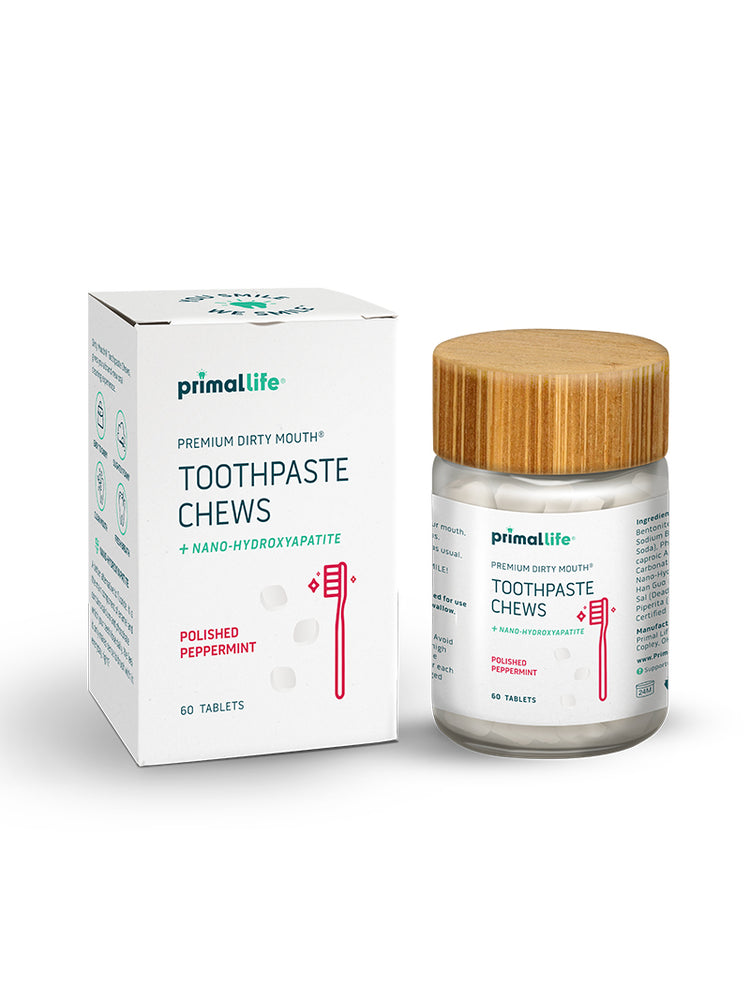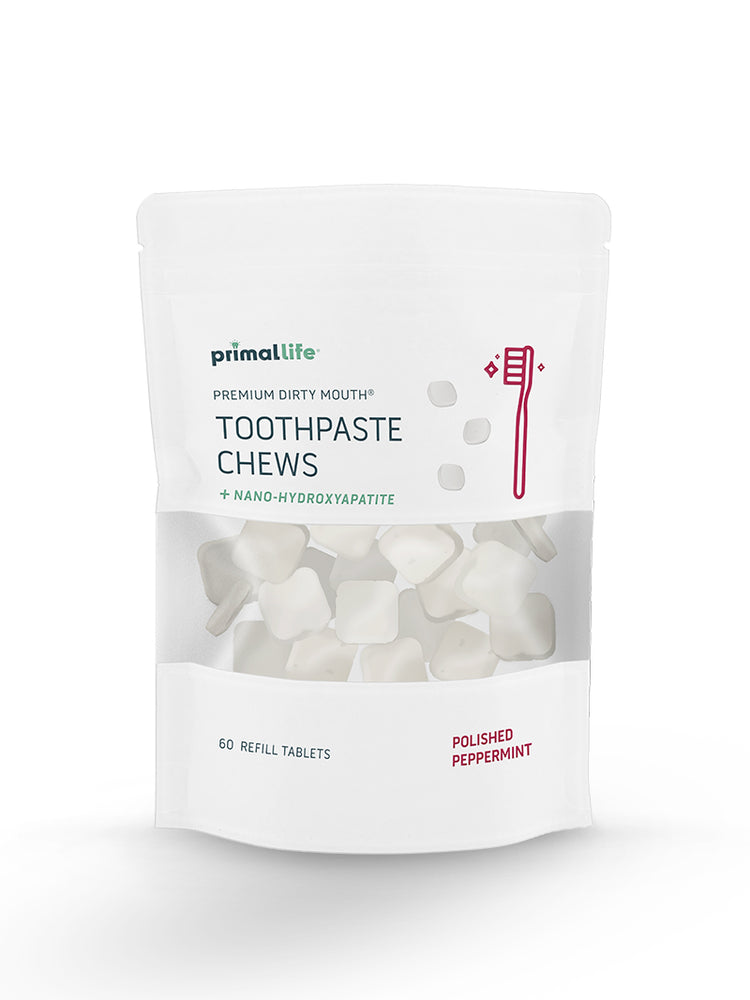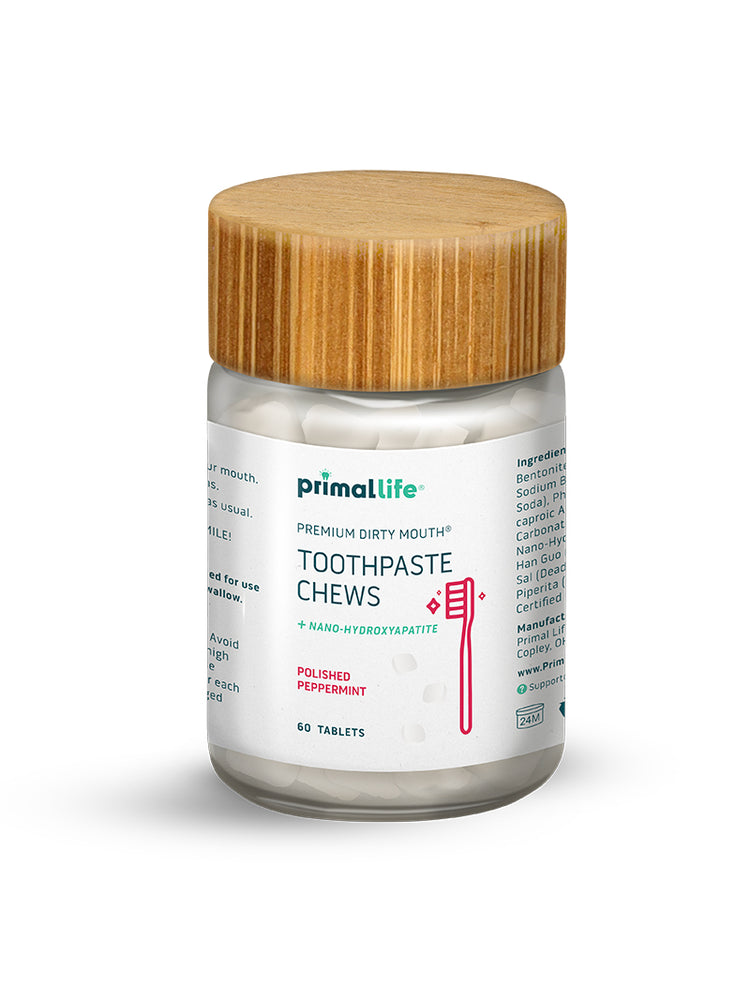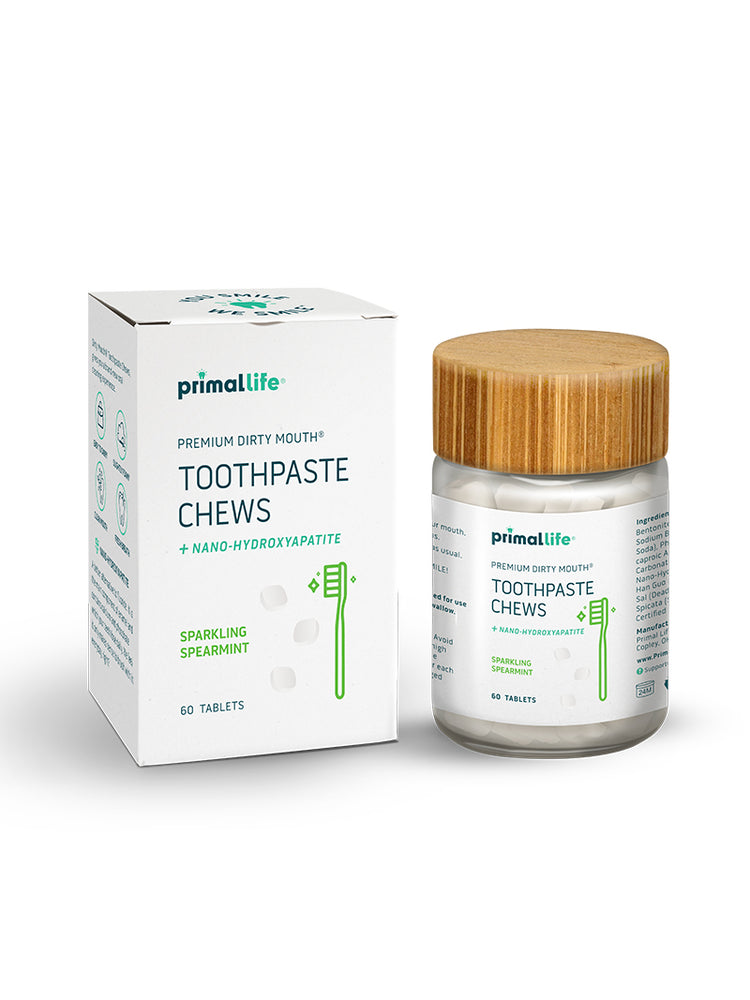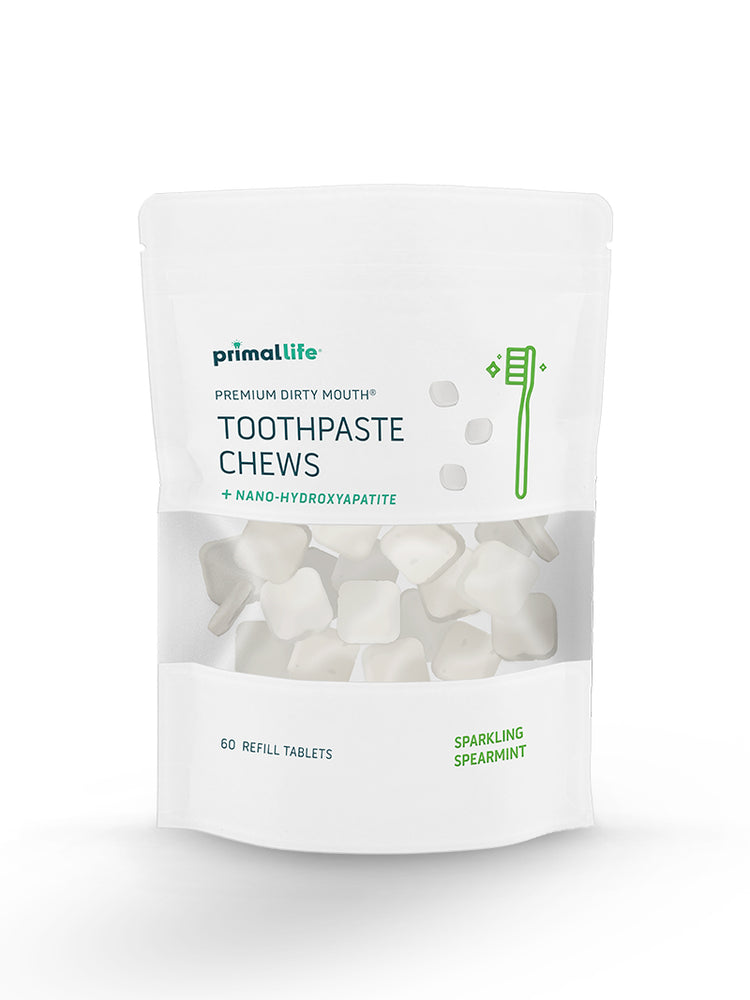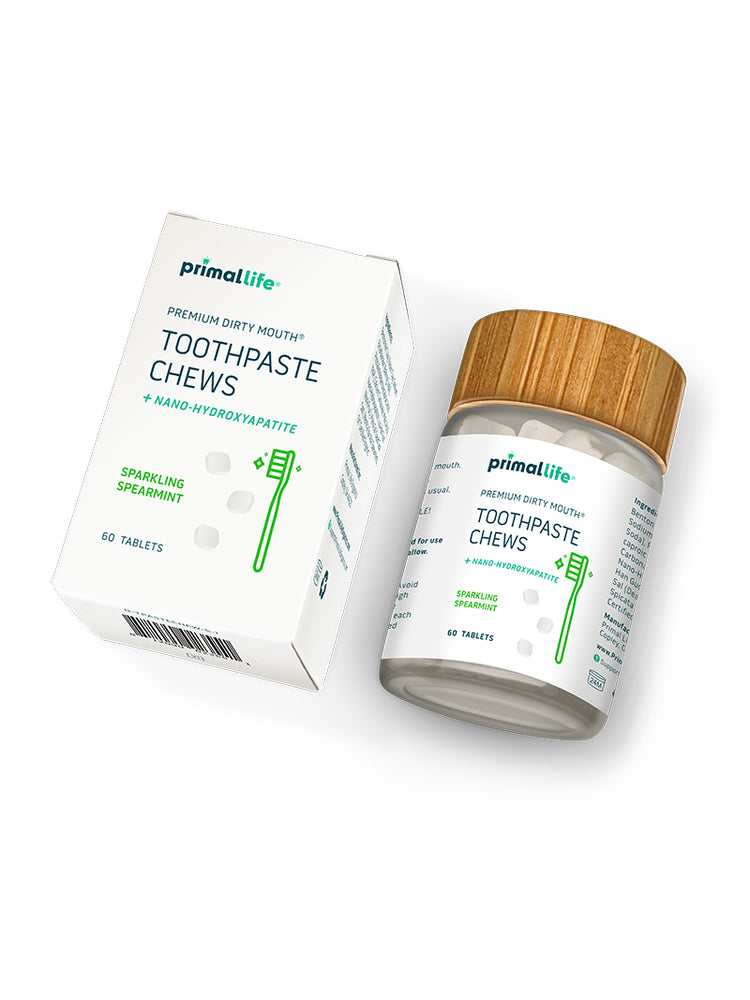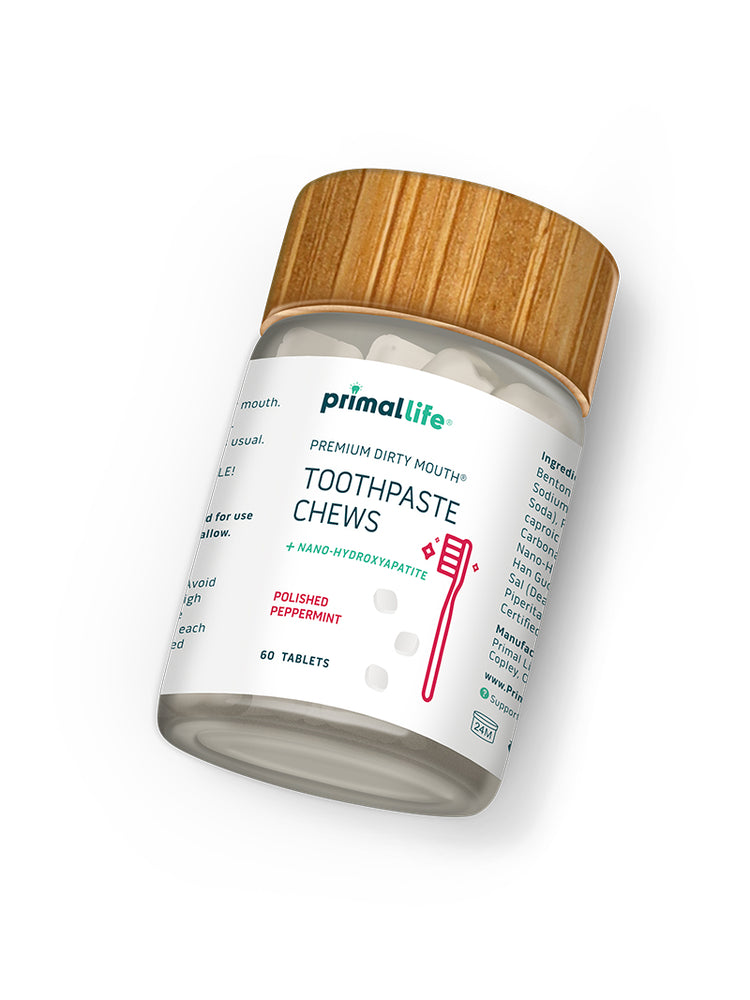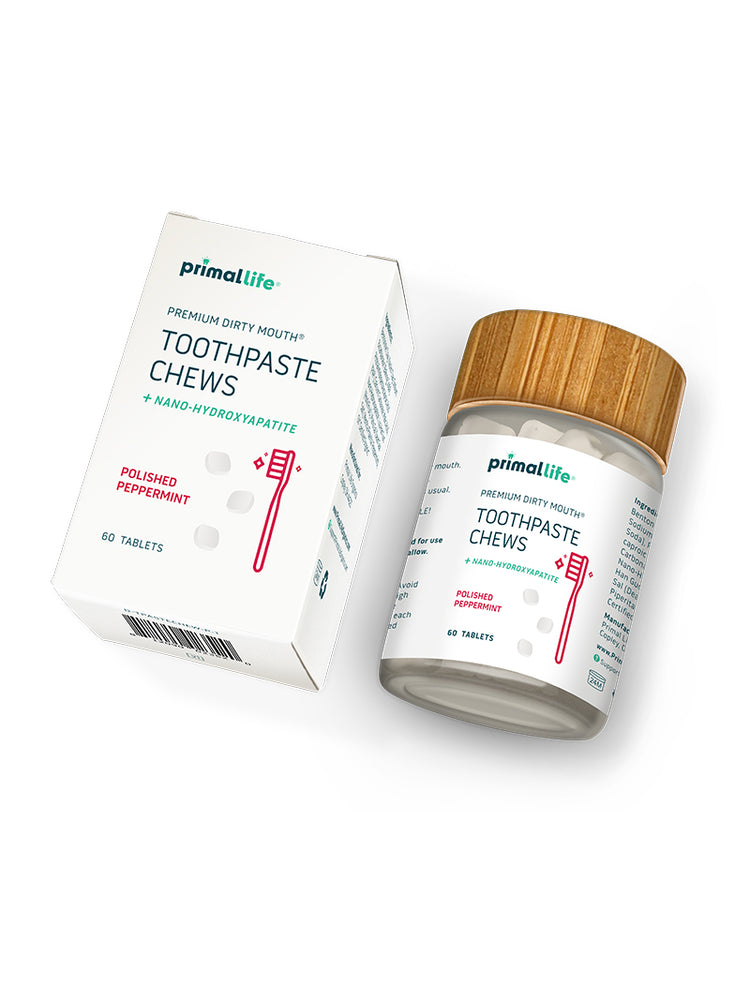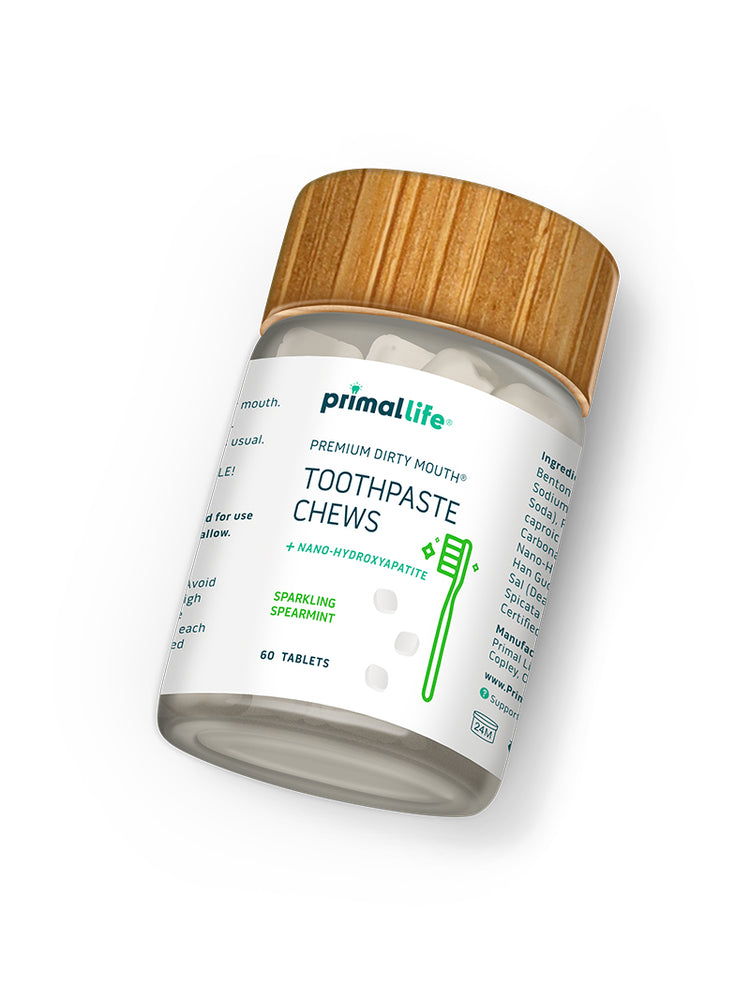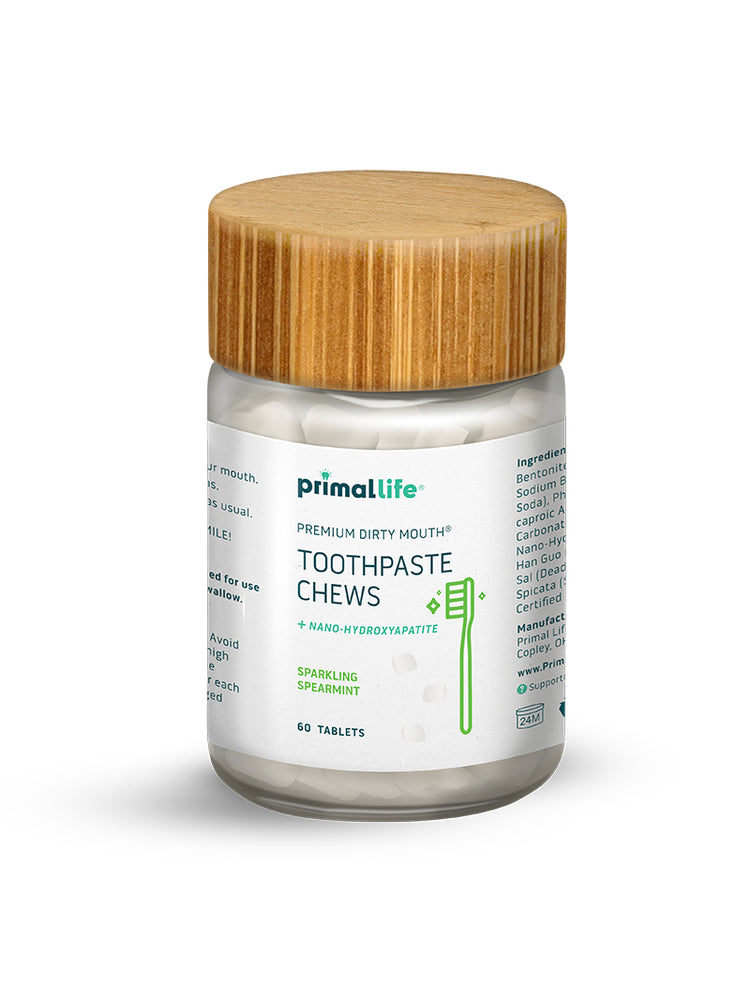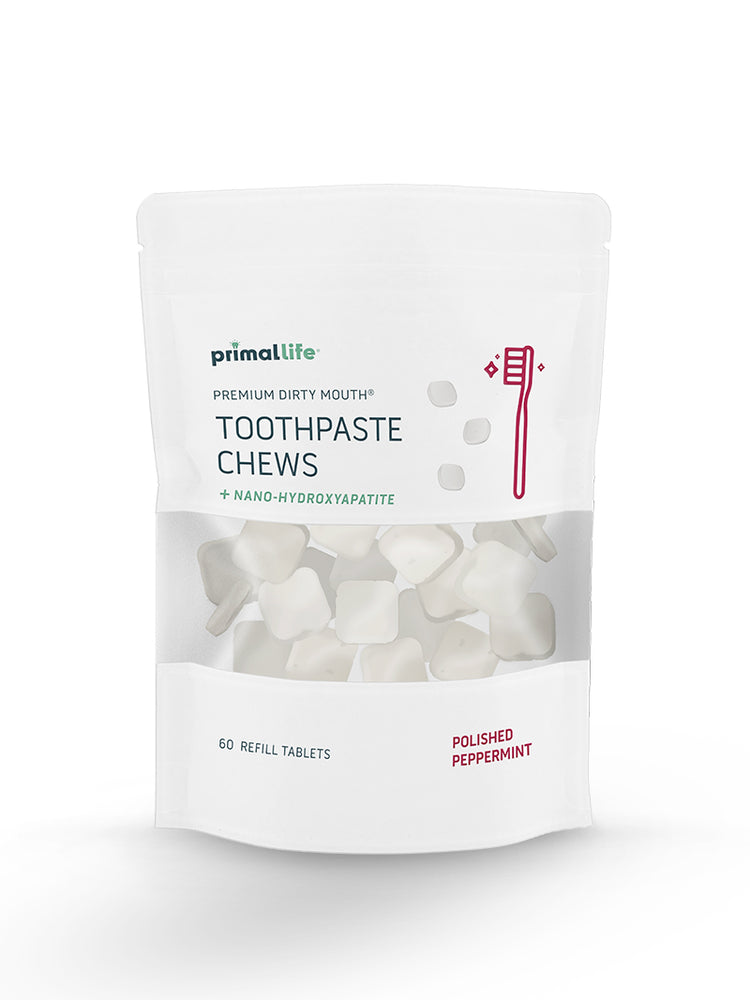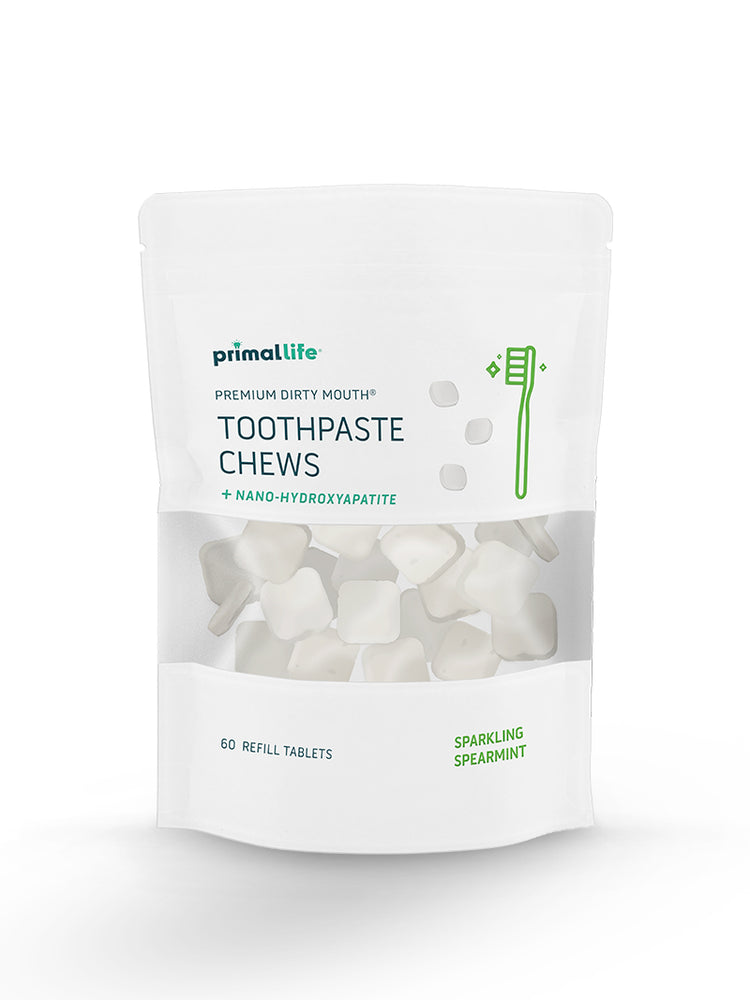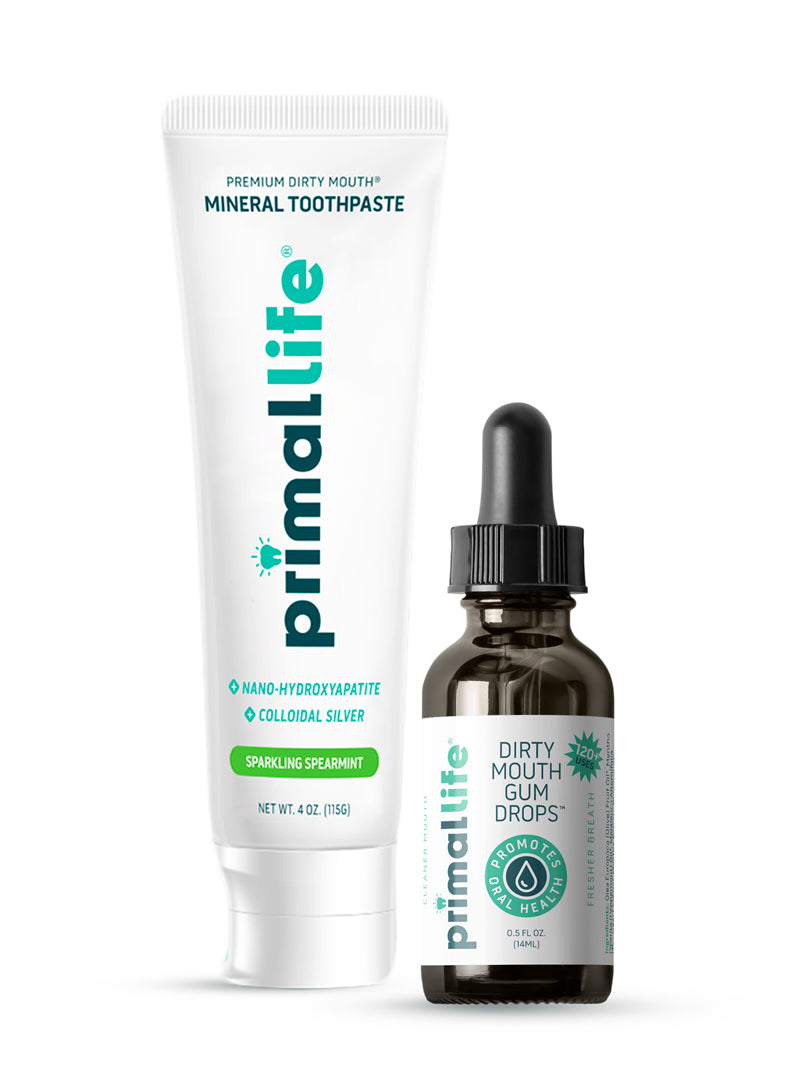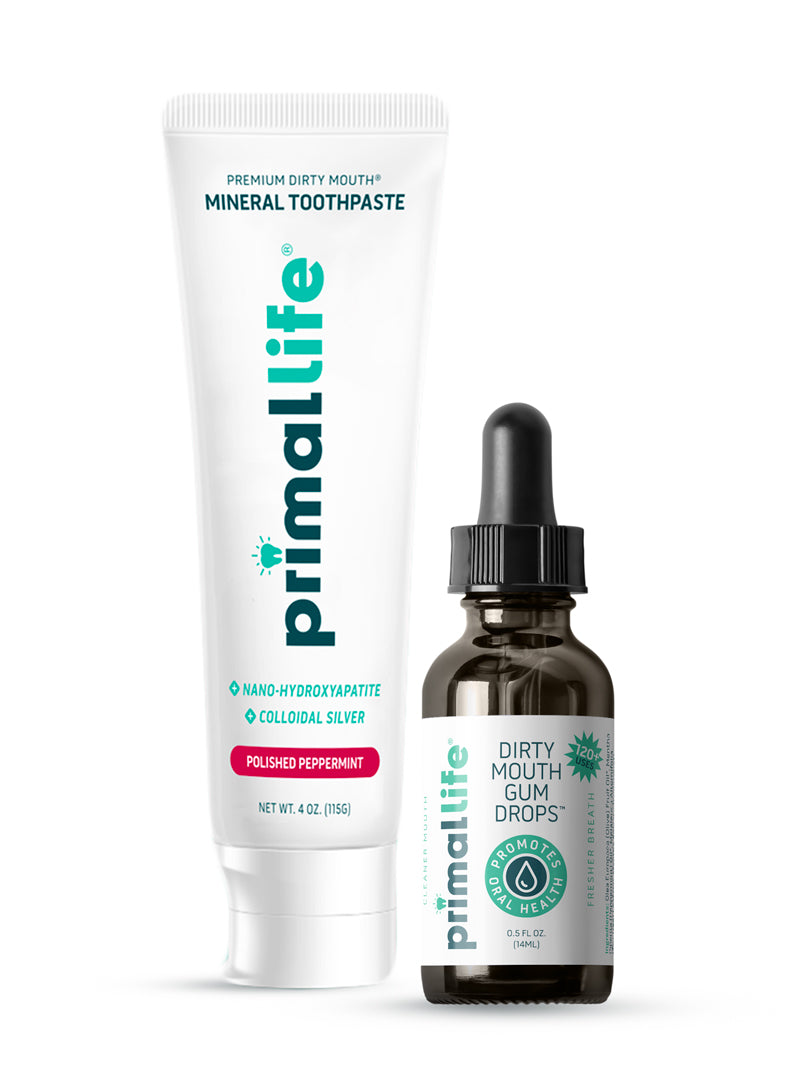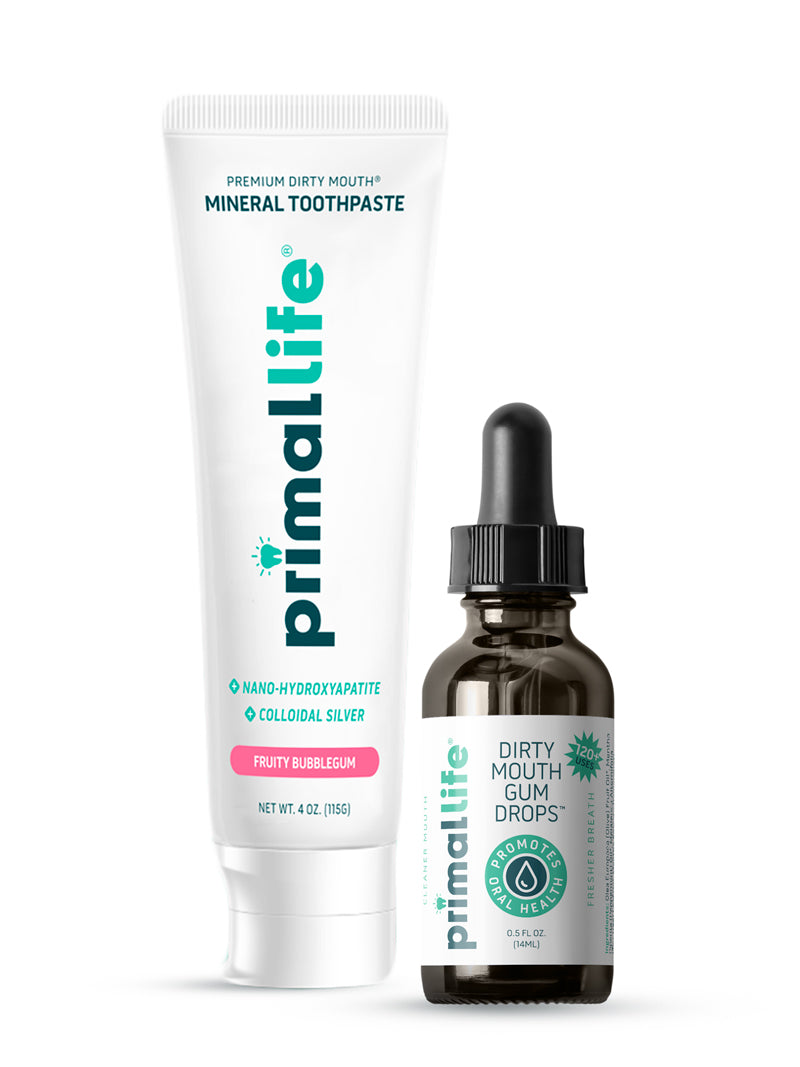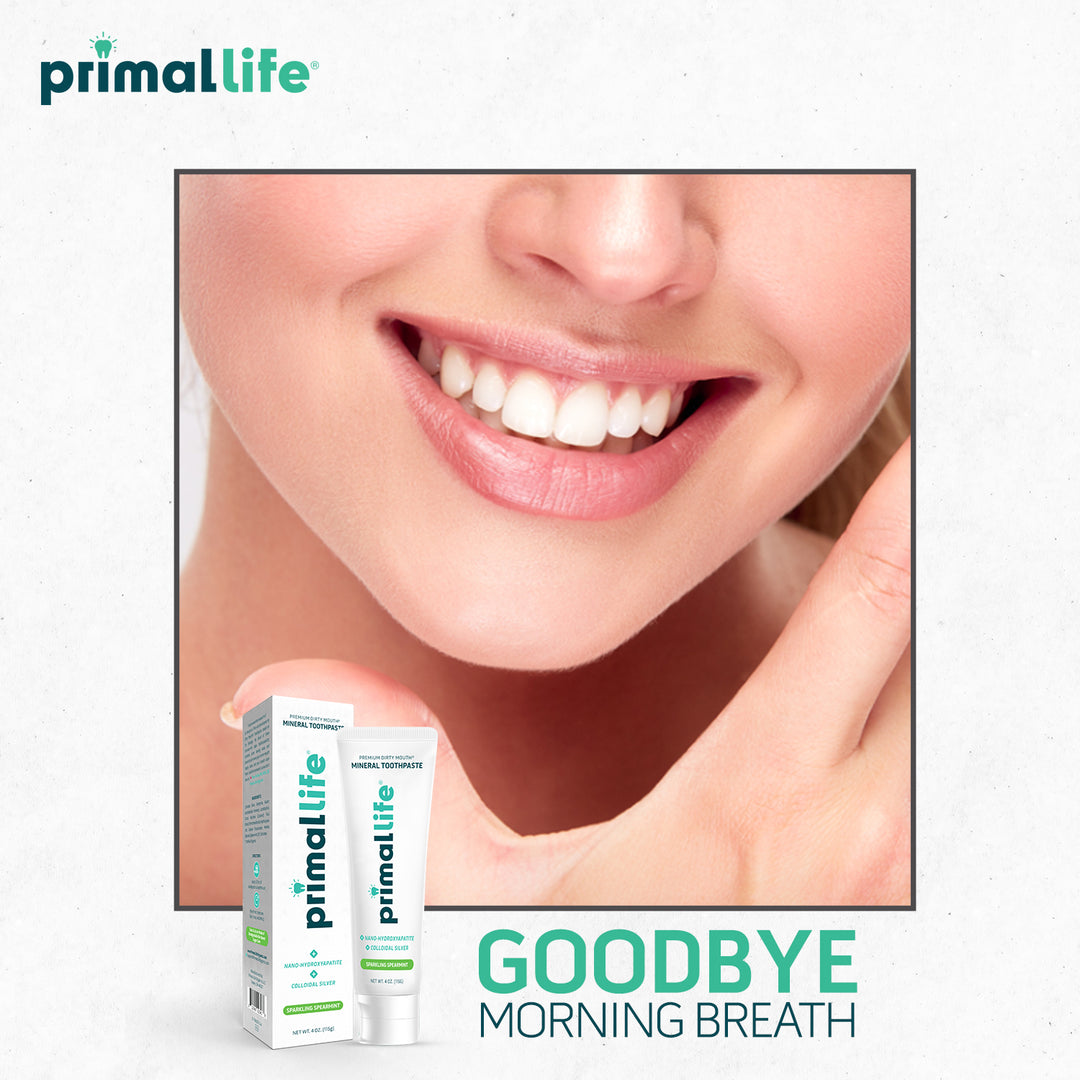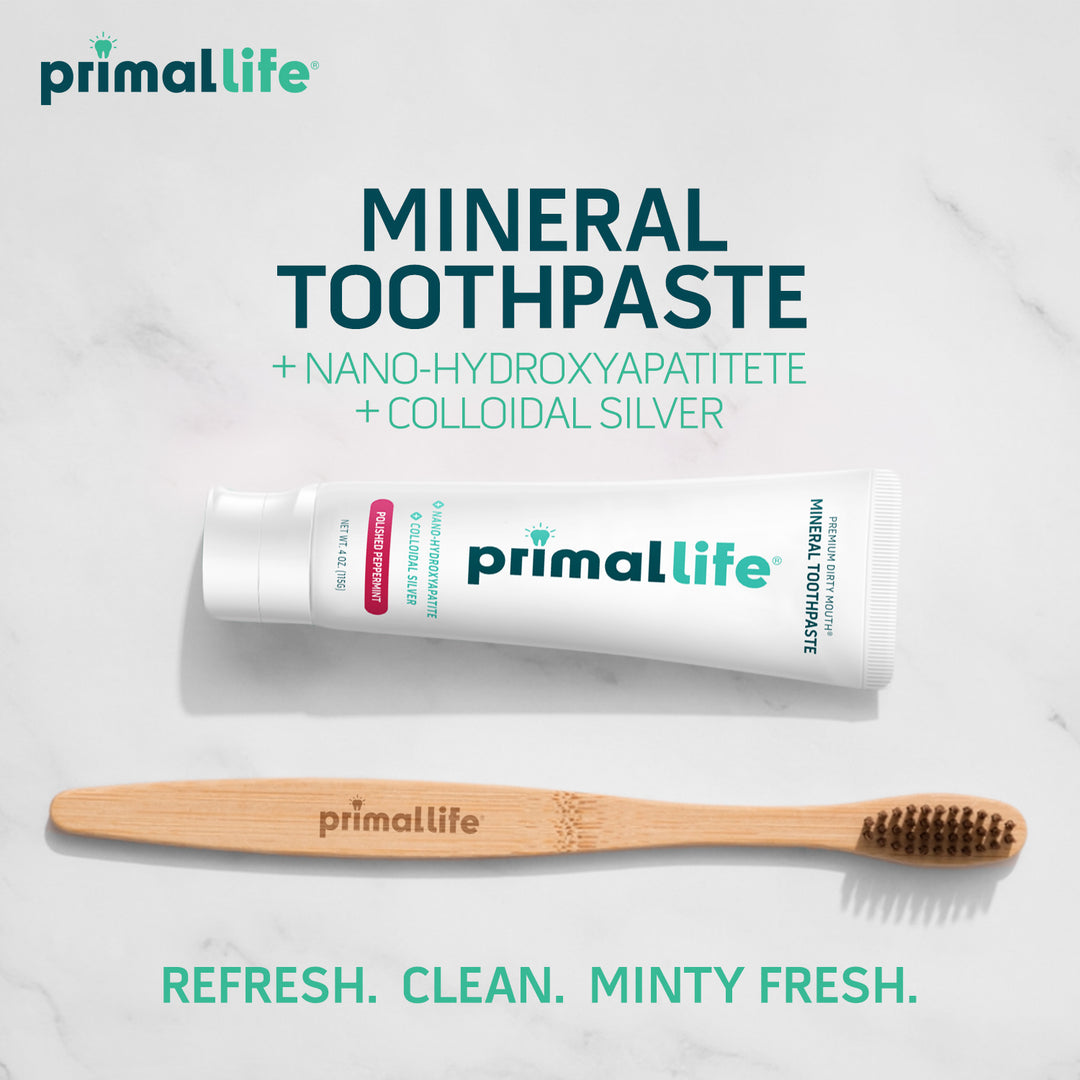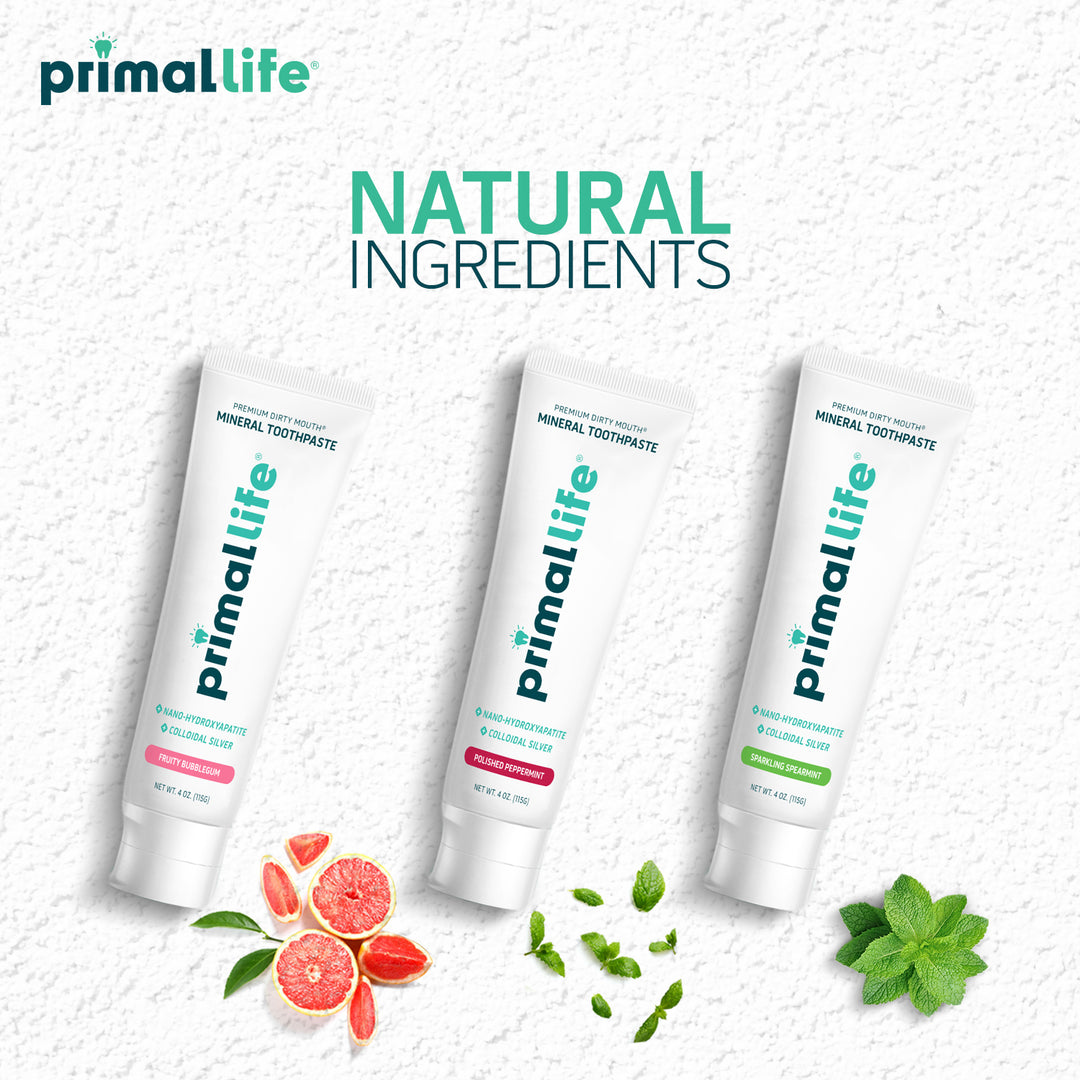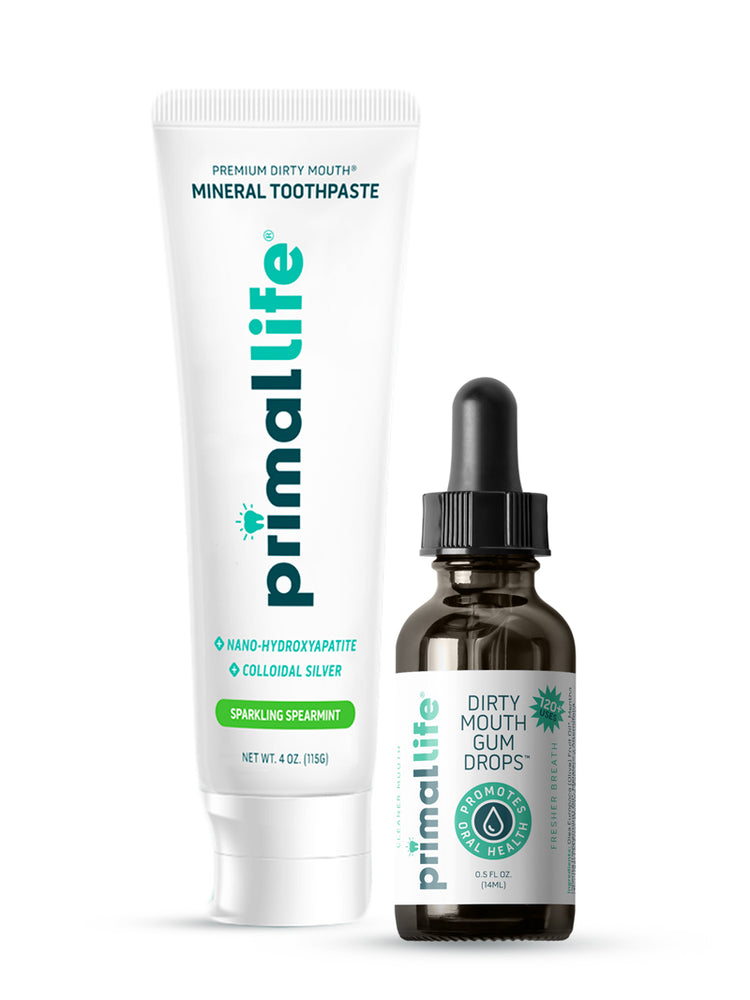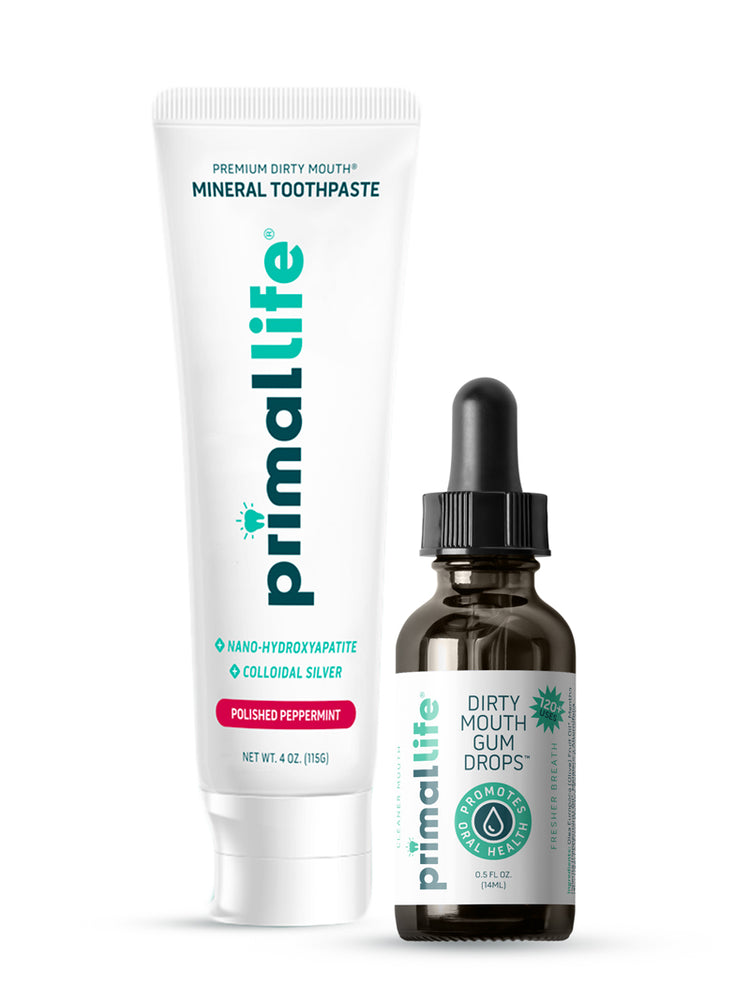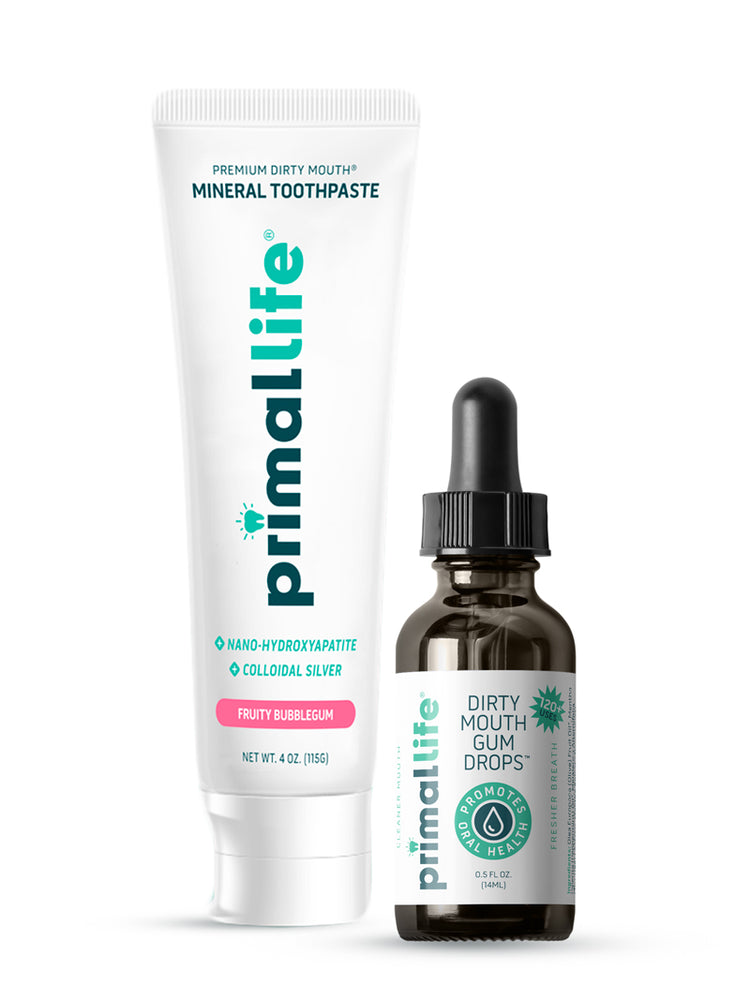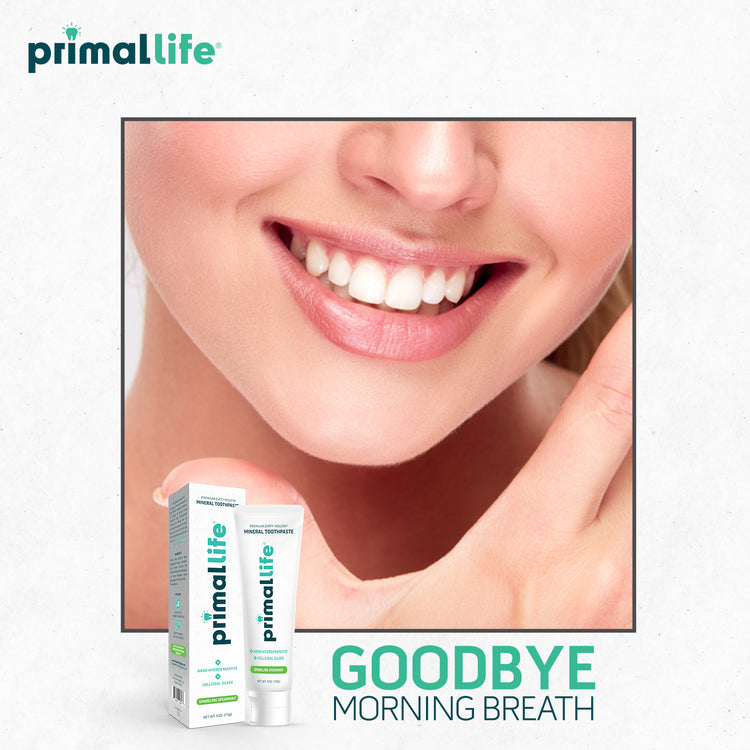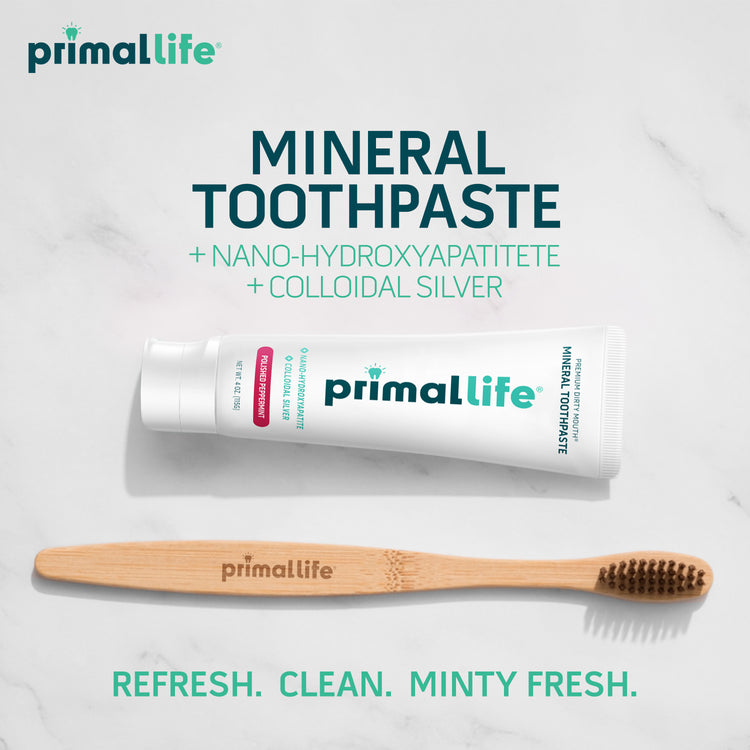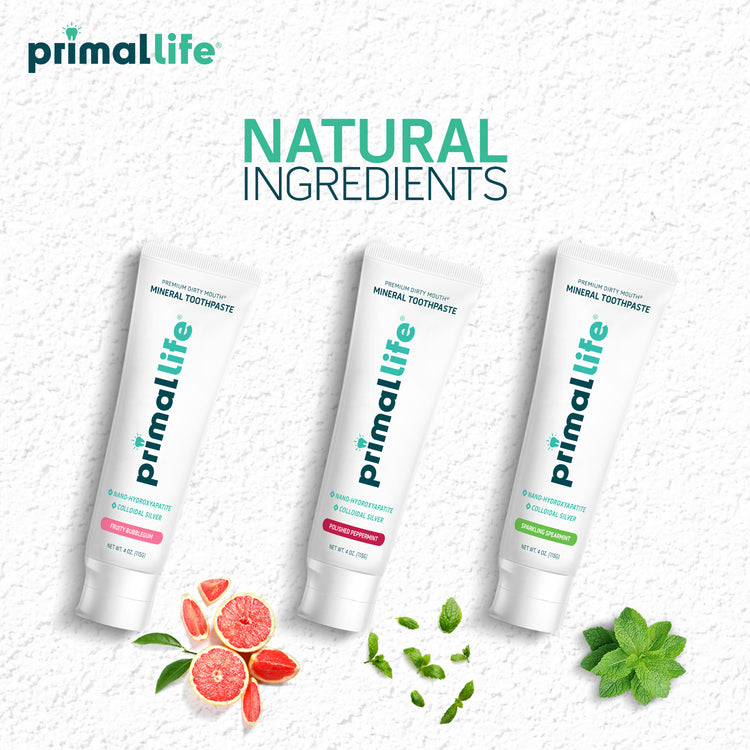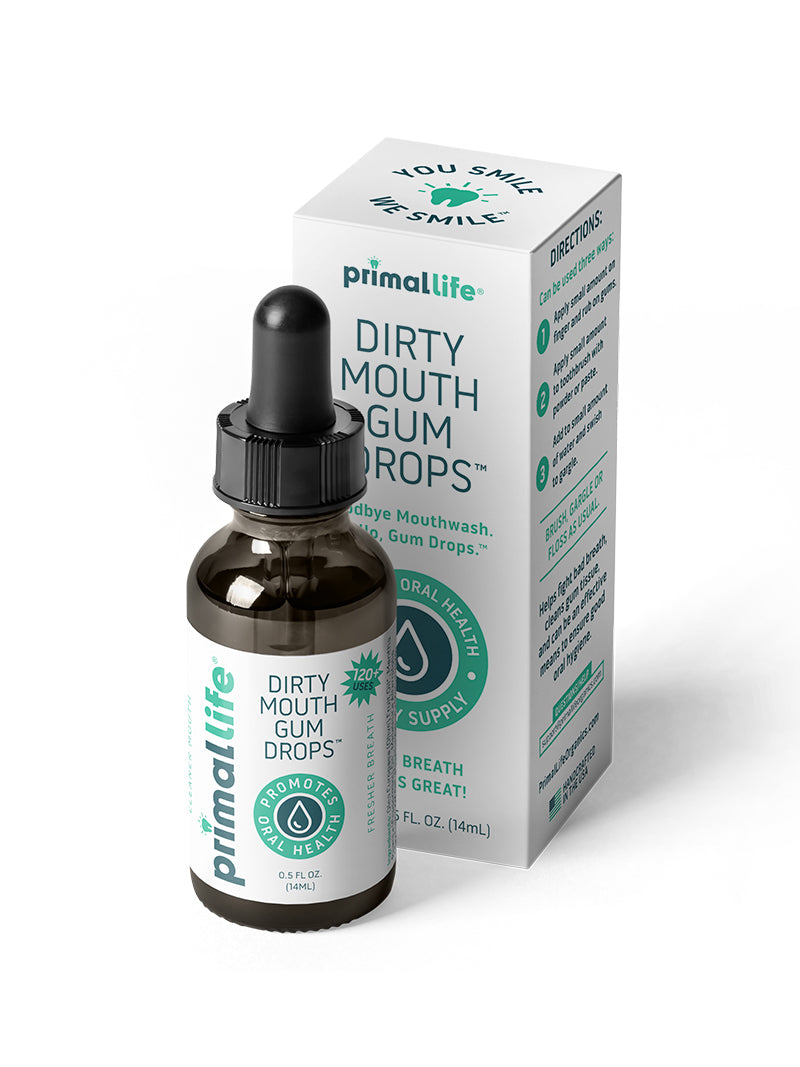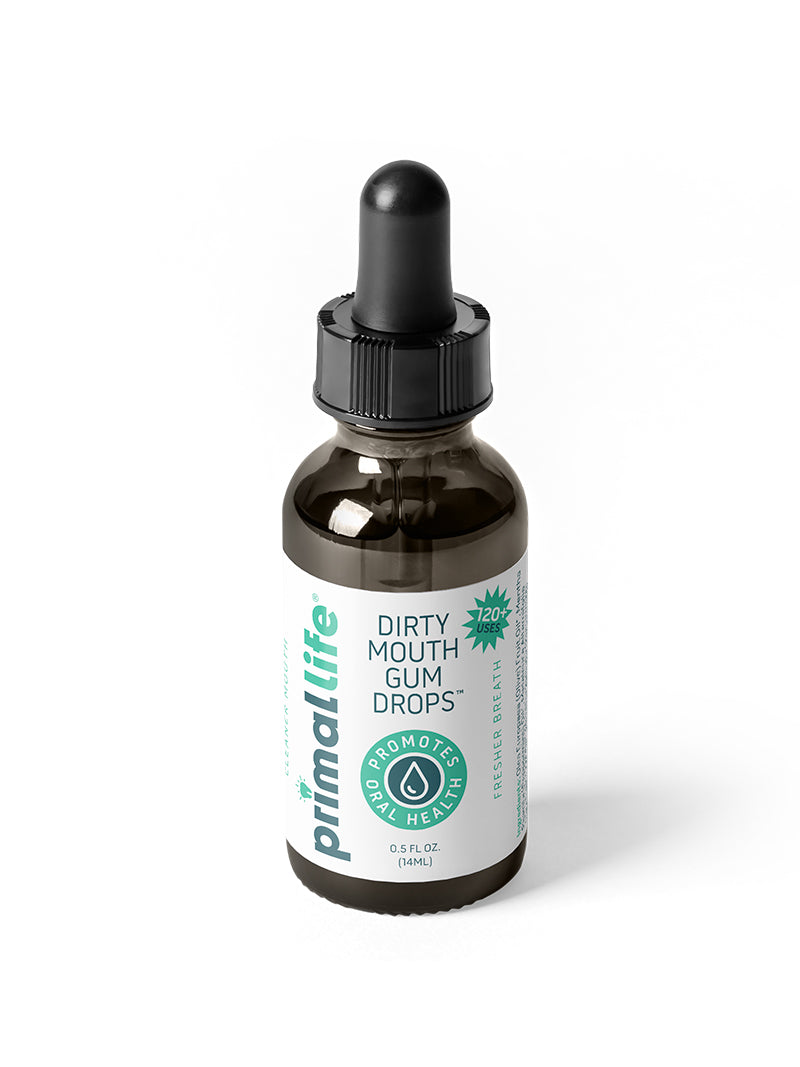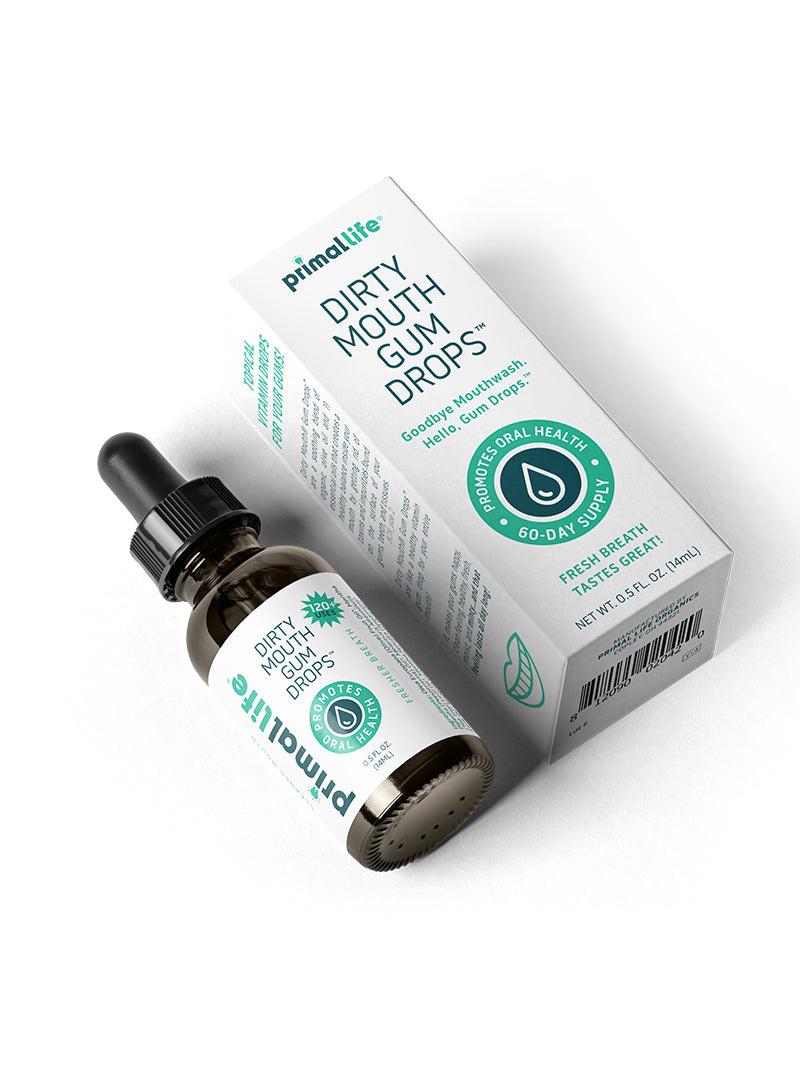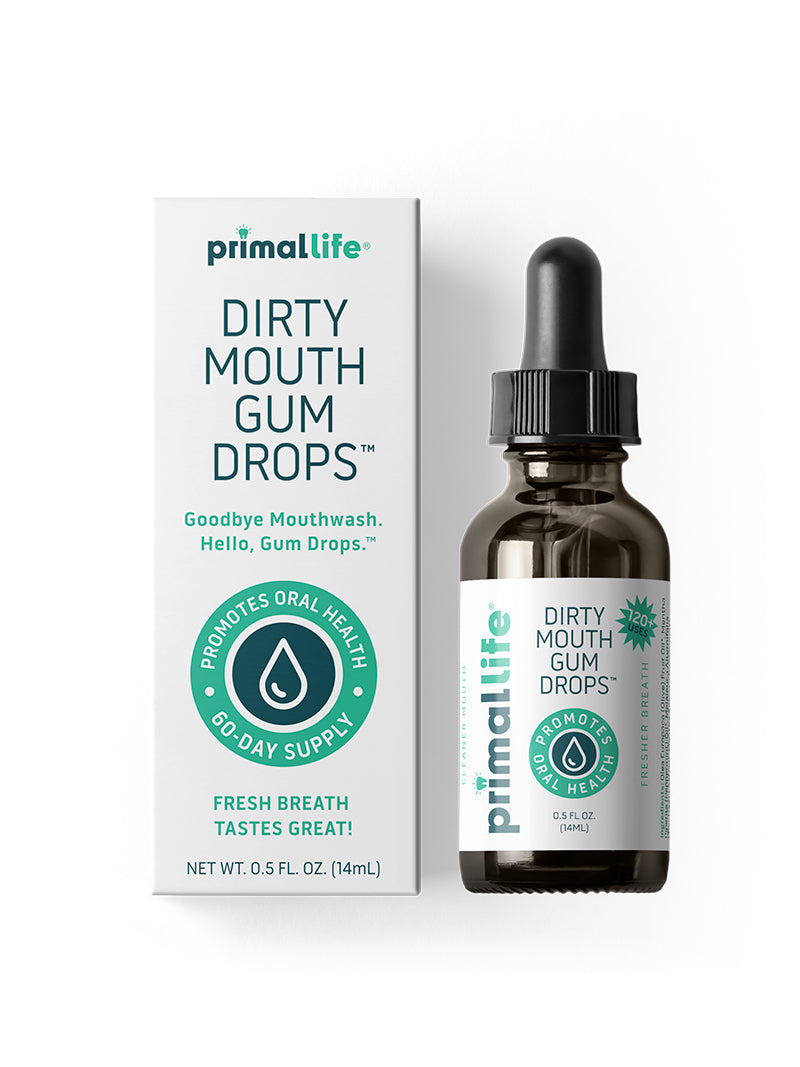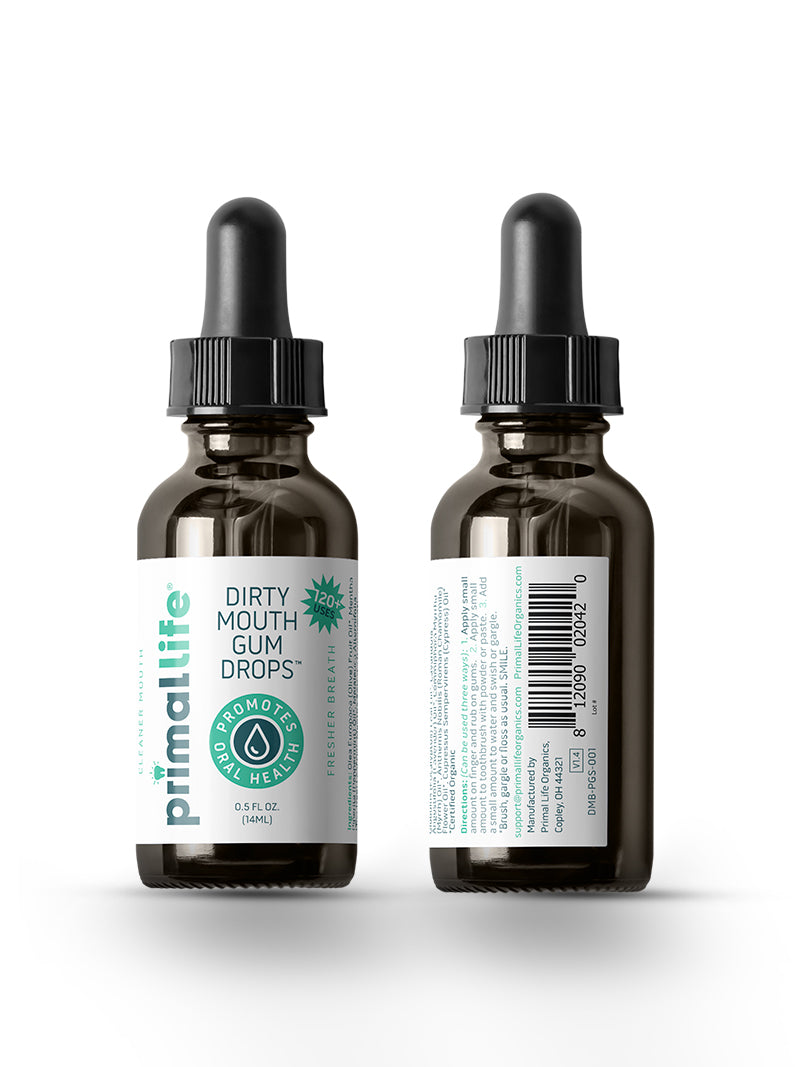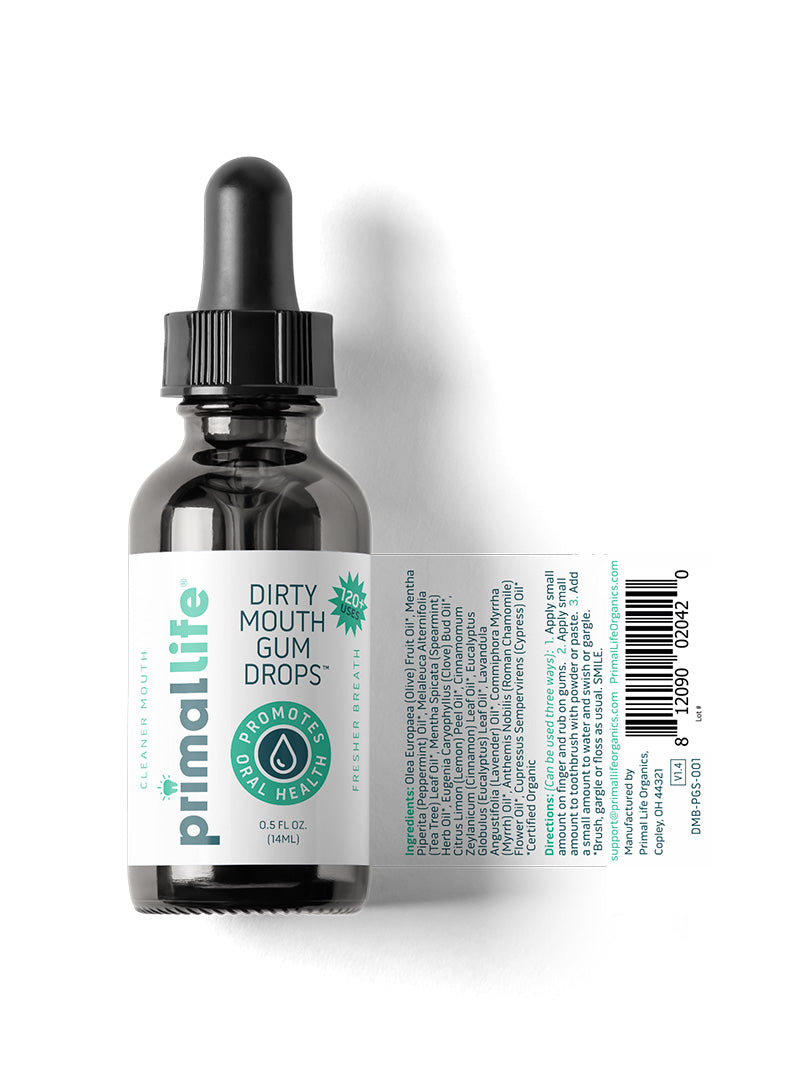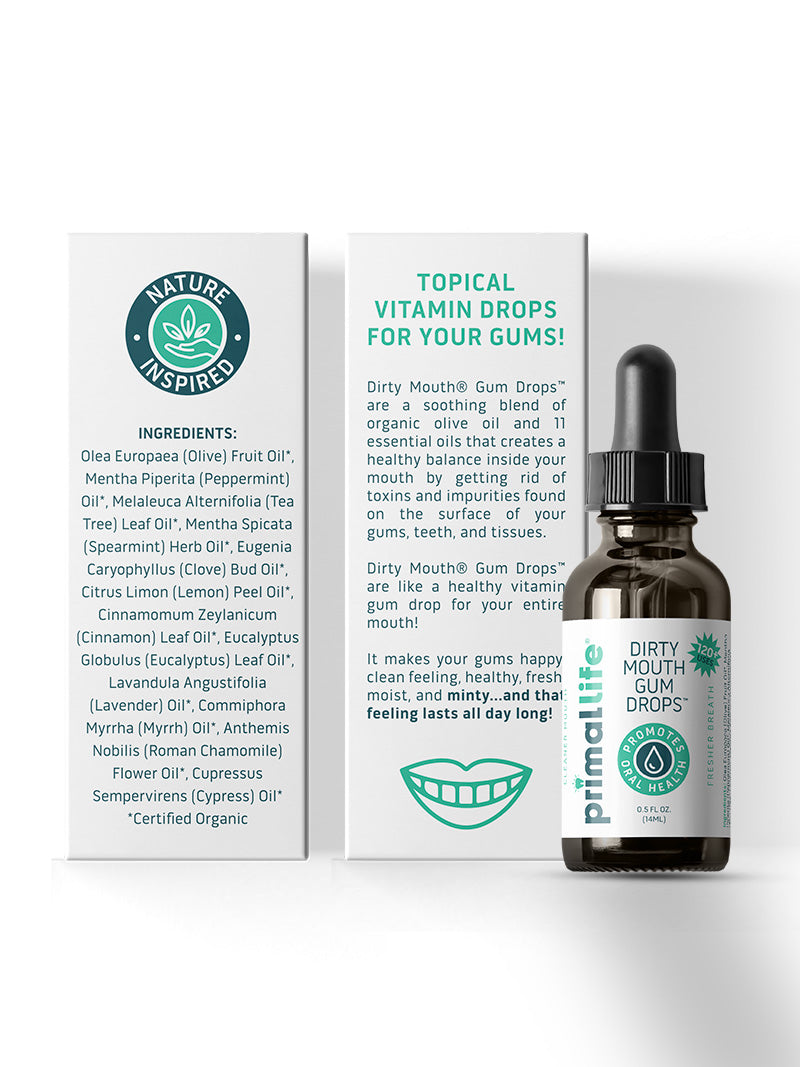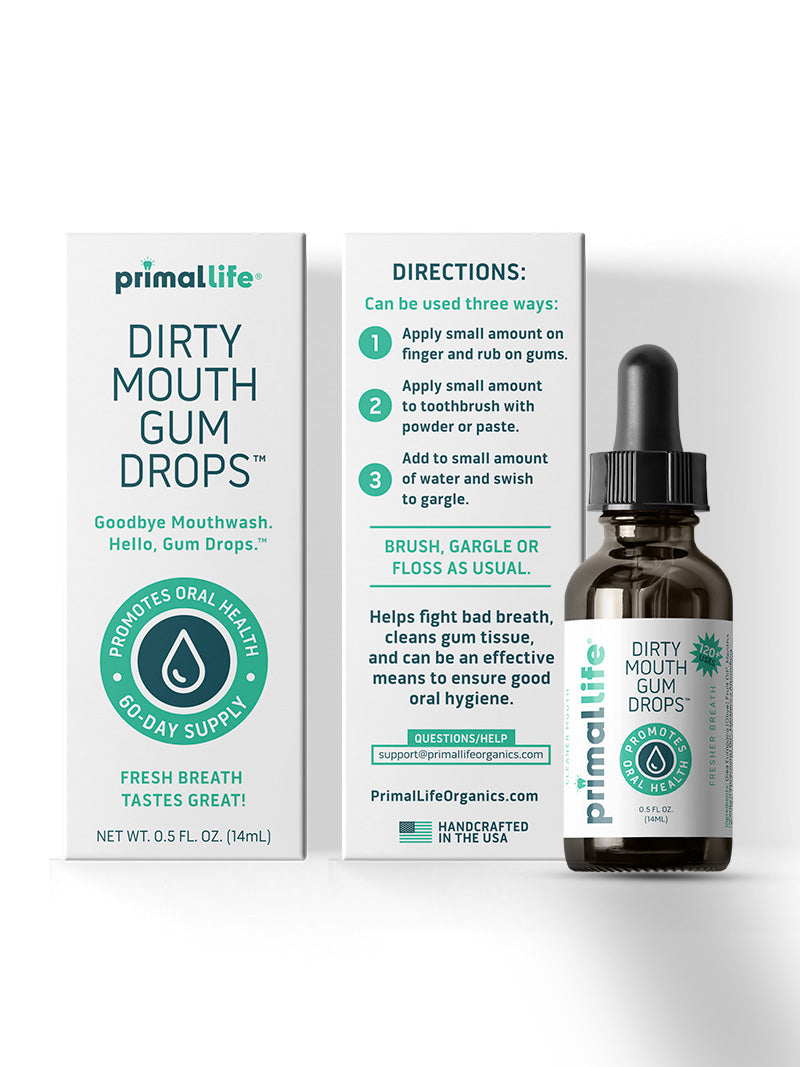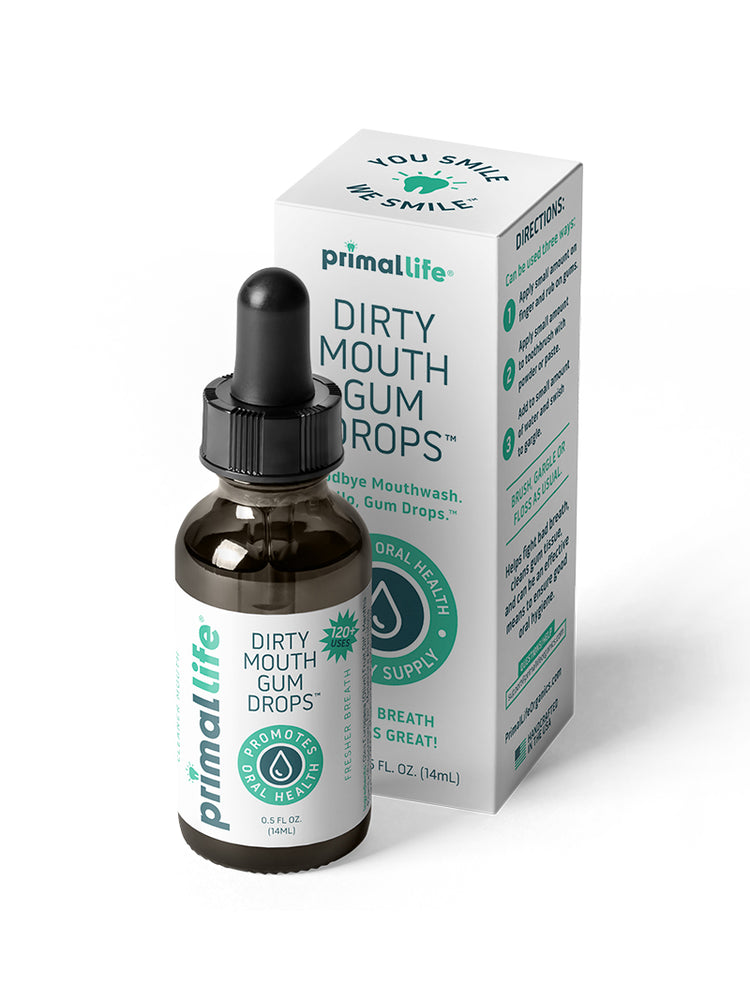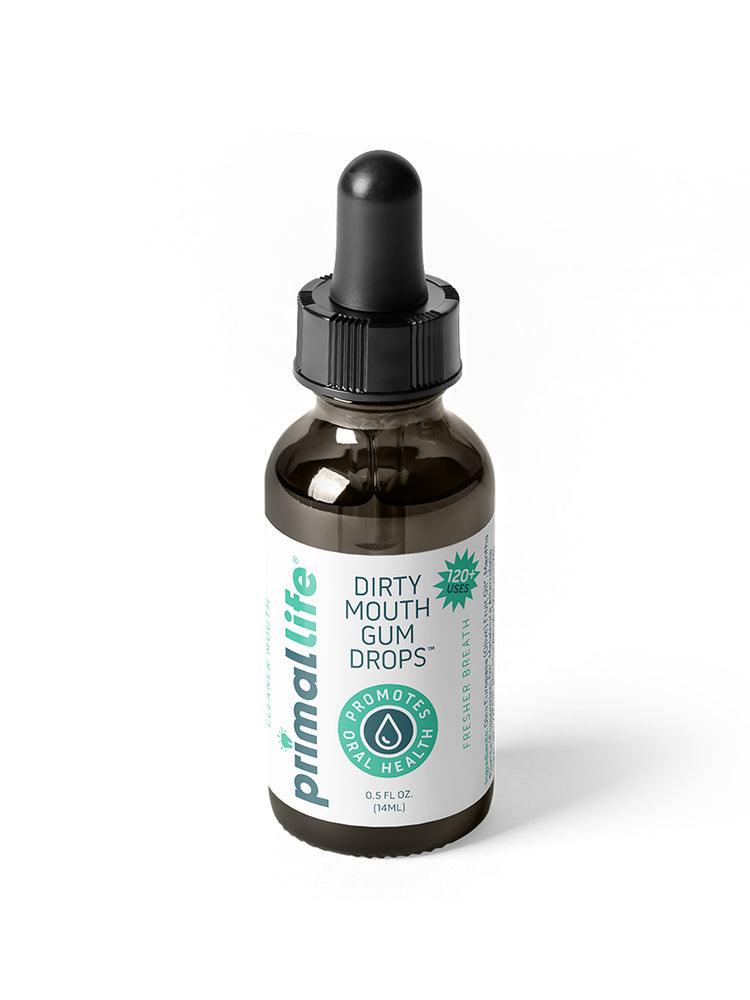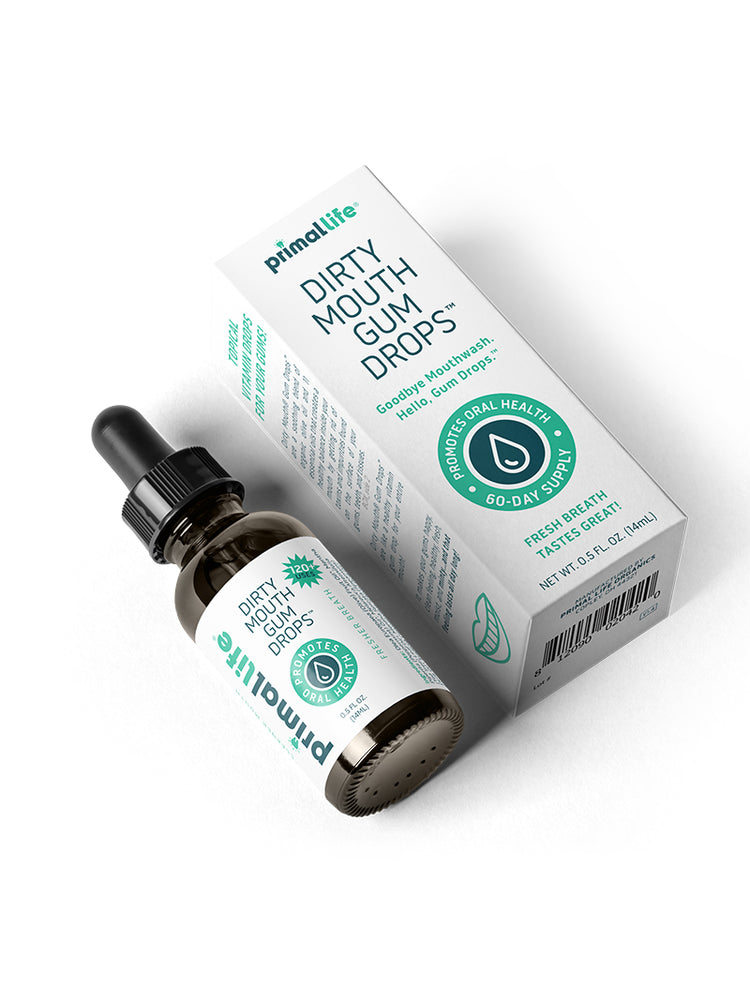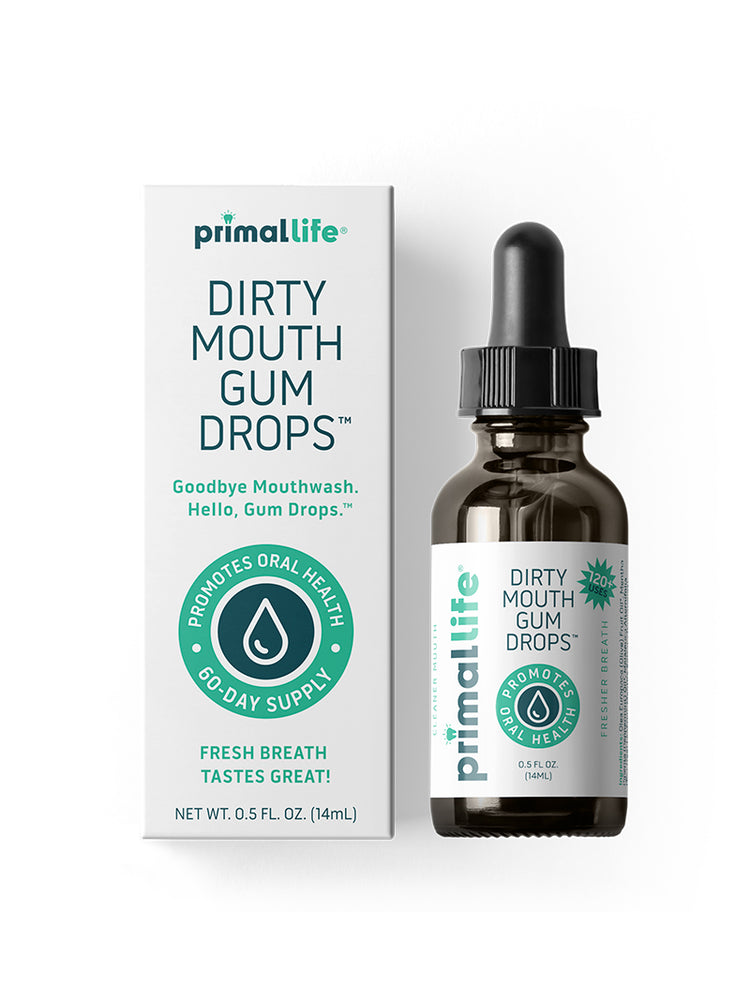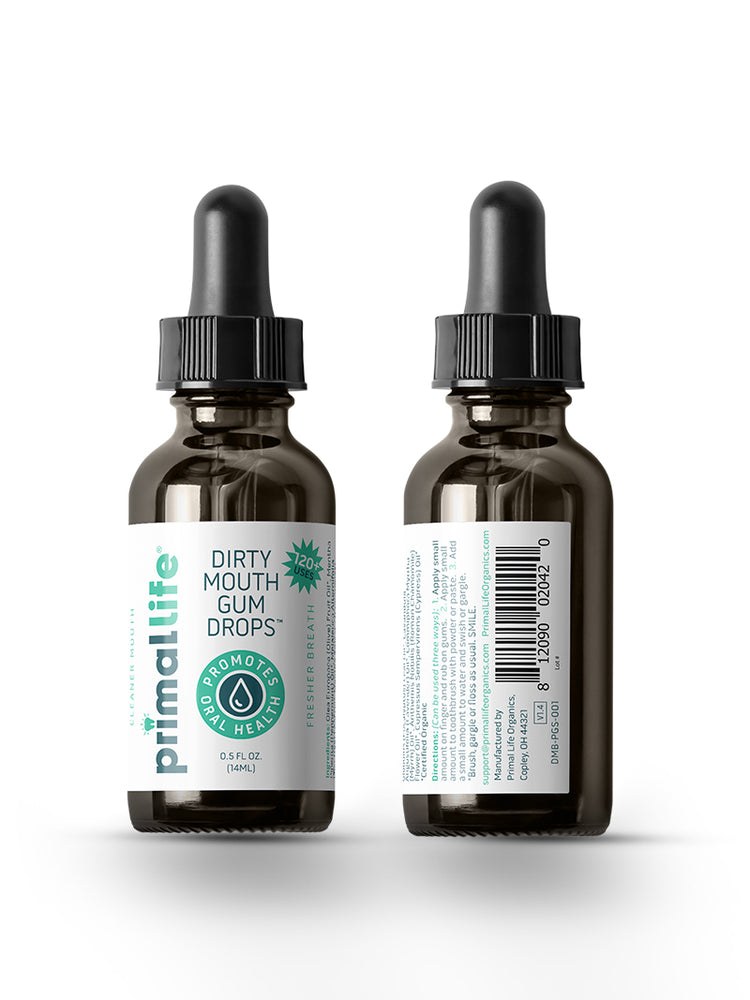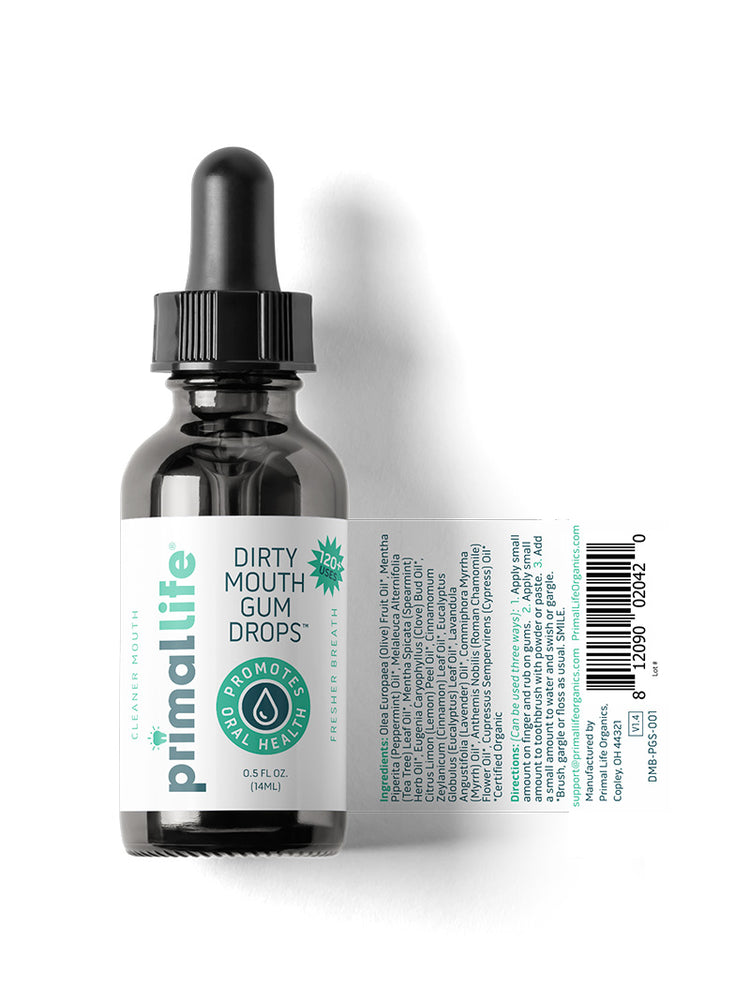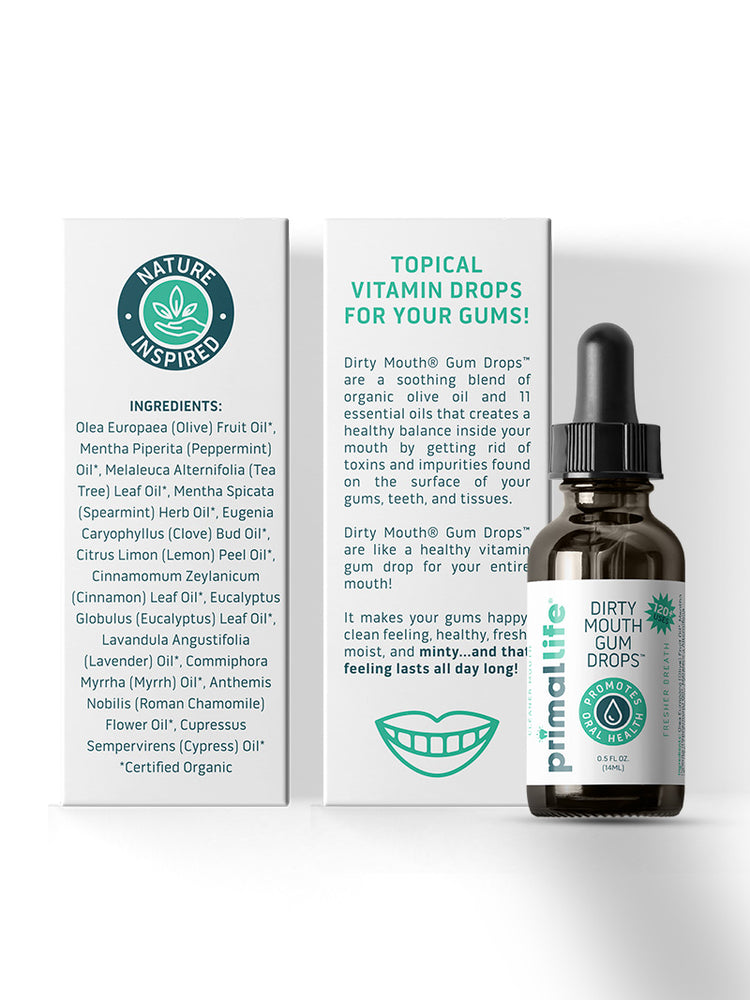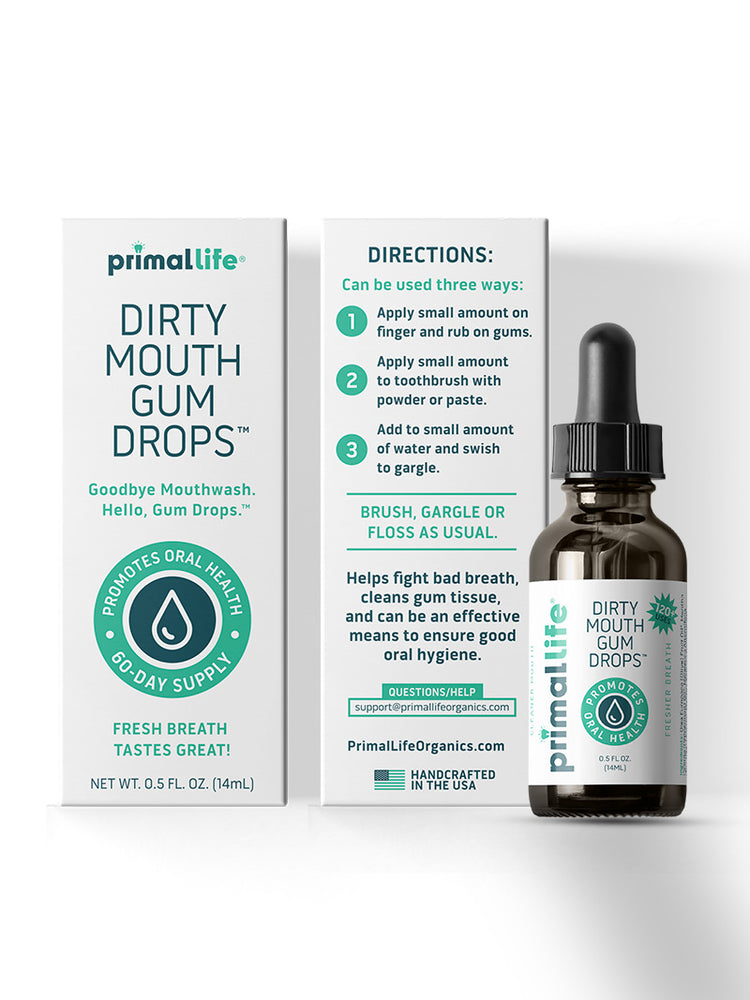Why Brushing Your Teeth Is Killing You
 You’ve been told since childhood that brushing your teeth is the single most important part of dental health. More specifically, you’ve been told that brushing with fluoride toothpaste is the secret to strong, white teeth.
You’ve been told since childhood that brushing your teeth is the single most important part of dental health. More specifically, you’ve been told that brushing with fluoride toothpaste is the secret to strong, white teeth.
So let me turn your world upside down by telling you that brushing your teeth with conventional toothpaste is hurting your mouth instead of helping it.
How can that be true?
If you’re like most Americans, you’ve been buying the same brand of fluoride toothpaste for decades without thinking twice. Changing that routine might feel scary or flat out wrong, but it’s time to question your morning and nighttime brushing habits!
Let’s start by busting the most common brushing myths and examining natural ways to brush teeth instead. You might be surprised by how quickly you’re ready to embrace the benefits of brushing without fluoride.
The Biggest Myths About Brushing
We all know the standard routine by heart: Spread fluoride toothpaste over a plastic bristle toothbrush and brush side to side for two minutes. Spit, rinse, and repeat again before bed. Well, it’s time to bust that myth and erase the routine from your memory.
Myth #1: Standard Toothpaste Ingredients Are Safe
This isn’t just a “myth”- it’s a downright lie. The ingredients used in conventional toothpaste formulas are not safe for your mouth, your body, or your health.
The truth is uglier: many common toothpaste ingredients do absolutely nothing to actively improve your dental health. Instead, they pose dangers to your wellness and compromise your oral health. Let’s take a look at the biggest culprits.
Fluoride
Fluoride is the most controversial toothpaste ingredient, and for good reason! It started as a “miracle ingredient” more than a century ago when scientists discovered fluoride could reduce the occurrence of dental cavities. Crest included fluoride in its formula in the 1950s, spurring the use of fluoride in all areas of traditional oral care.
It sounds positive to use an ingredient capable of halting cavities, but there’s more you should know about fluoride. Much more. It’s actually considered a neurotoxin that affects the behavior of neurotransmitters in the brain and reduces energy essential to brain function.
The National Academies of Science, Engineering, and Medicine (NAP) performed a comprehensive review of fluoride in 2006 to document fluoride’s neurotoxicity and neurobehavioral effects. NAP’s research noted that fluoride increases the production of free radicals in the brain, which in turn accelerates degeneration of healthy tissues and disrupts essential brain functions.
As a result, fluoride is linked to a number of severe complications that make it a documented danger to your body:
- Developmental impairments
- Entry of aluminum into the brain
- Higher risk of thyroid imbalance
- Nervous system degeneration
- Impaired pineal gland function
- Depression
This all begs the question: why on earth are we using fluoride as a part of dental care at all? What other proof do we need to bust the fluoride myth?
Triclosan
Beyond fluoride, name brand fluoride toothpaste products also contain triclosan. This ingredient, which is also found in self-care products like soaps and cosmetics, is used to reduce bacterial contamination. However, research shows that the dangers of triclosan outweigh any potential benefits.
Even the FDA has stated that triclosan is “not generally recognized as safe” due to insufficient proof of its long-term benefits. Studies show the potential for triclosan to nurture antibiotic-resistant bacteria and interfere with thyroid hormone production.
The good news, at least, is that manufacturers are now required to include triclosan on their ingredients labels. A growing number of brands have reformulated their toothpastes to exclude triclosan from the label.

Aspartame
Hopefully you already know to steer clear of aspartame in your coffee and dessert, but you even need to look for it in your toothpaste now! Conventional toothpaste brands take advantage of the intense sweetness of aspartame to improve the taste of their products.
However, when aspartame is processed through your digestive system, it’s converted into methanol. A certain type of methanol, free methanol, breaks down into the carcinogen and neurotoxin formaldehyde in the body. That’s not exactly what you want from a toothpaste!
Myth #2: It’s Good to Kill All Bacteria
Bacteria have a bad reputation, but they don’t deserve it. Believe it or not, certain bacteria are critical to the health of your mouth. It’s a complete myth that you need to kill all bacteria to keep your mouth clean.
This balance between good and bad bacteria is known as your oral microbiome. It contains billions of productive bacteria that actually help your mouth resist pathogens and toxins. In other words, nurturing a balanced oral microbiome makes it possible to fight inflammation, maintain a strong immune system, and more.
So what does this have to do with your toothpaste? Regular fluoride toothpaste products are formulated to kill all bacteria in the mouth. They don’t differentiate between productive bacteria and dangerous bacteria. Every single time you brush your teeth with standard toothpaste, you destroy the “good” bacteria trying to thrive inside your mouth. As a result, you also unintentionally eliminate your mouth’s natural ability to neutralize foreign invaders and minimize inflammation.
The consequences of an imbalanced microbiome are easy to see. You become vulnerable to cavities, bleeding gums, bad breath, biofilm on the tongue, chronic inflammation, and other signs of gum disease.
Alternatives to Conventional Daily Oral Care
If you don’t want to continue using oral care products that do your mouth more harm than good, consider these natural ways to brush teeth.
Brushing Without Fluoride: Try Natural Tooth Powder
Did you know it’s possible to clean and strengthen your teeth without toothpaste? I know, I know, it sounds crazy. But don’t all great ideas seem crazy at first?
You never need to buy another tube of “toxi-paste” from Wal-Mart again. Replace your standard toothpaste with natural tooth powder or natural toothpaste for a safe alternative to conventional daily oral care.
Tooth powder is a simple blend of natural ingredients proven to actively improve the strength and health of your entire mouth. Unlike fluoride toothpaste, which tries to prevent cavities and temporarily make your breath feel minty, tooth powder actually enhances your overall oral health.
- Strengthens your teeth and enamel
- Fights off harmful bacteria while protecting healthy bacteria
- Reduces and prevents sensitivity by remineralizing teeth
- Protects gums from decay and infection by fighting plaque and reducing inflammation
- Neutralizes bad breath
If brushing with a clay-based tooth powder sounds strange, don’t worry. Once you start, you’ll wonder how you ever used to feel satisfied with toxic toothpaste.
Brush With a Charcoal Toothbrush
Charcoal is a powerful oral health tooth, but it’s still a little known secret. I’m not talking about the charcoal from your barbeque, but a fine black powder used for a variety of medical purposes. You can capture the natural cleansing power of activated charcoal simply by using a charcoal bristle toothbrush.
When activated charcoal comes in contact with your teeth, its adsorptive properties immediately bond to the molecules creating stains, yellowing, and brown marks on your teeth. Toxins and discoloration-causing molecules are pulled gently out of your teeth and spit right into the sink.
Activated charcoal also improves your overall oral health by removing the toxins and bacteria that cause plaque and inflammation. Less plaque and inflammation equals fewer cavities, happier gums, and a brighter smile!

If you’re not so sure about tossing your plastic toothbrush in favor of a Charcoal Ion Toothbrush, just consider these impressive benefits compared to your conventional toothbrush:
- Removes plaque without weakening teeth or causing sensitivity
- Adds whitening power to your brushing by pulling stains out of enamel
- Eliminates bad breath by removing toxins from teeth, gums, and tongue
- Cleanses gum tissue drawing pathogens out of their tiny hiding spots
By protecting your gums from the accumulation of bacteria and acids, your activated charcoal toothbrush can prevent gingivitis and help you maintain a white, confident smile.
Stop Ignoring Your Floss
If your floss container has been gathering dust over the last few years, it’s time to finally give it the love it deserves. Flossing is one of the simplest ways to remove food debris and bacteria lurking between your teeth, yet the American Dental Association revealed in a 2017 study that only 16% of Americans floss regularly.
You wouldn’t only cook half of your dinner or put makeup on only some of your face, so why would you ignore half of the surfaces of your teeth? If you truly want to preserve the health of your mouth, flossing isn’t optional. It’s the only way to remove plaque from between the teeth and prevent decay and inflammation in those areas.
This quick tutorial will help you become a floss master in minutes:
- Wrap about 18” of floss around each of your middle or pointer fingers
- Hold the floss taut and gently fit in between two teeth
- Bend the floss into a “C” shape as you rub it gently up and down the side of the tooth
- Repeat in between all teeth
New flossing tools like floss picks (we love our activated charcoal-bamboo biodegradable floss) also make it easier than ever to floss quickly and efficiently, so you’re out of excuses now!
Make Your Own Natural Mouthwash
Forget harsh commercial mouthwash products that destroy all of the healthy bacteria in your mouth. Save money and do your mouth a favor by making your own natural mouthwash with essential oils.
Essential oils are highly concentrated botanical oils used since ancient times for their therapeutic properties. Tea tree and peppermint oils are two of the most popular essential oils used in DIY mouthwash because they’re versatile and backed by time-tested research.
The impressive therapeutic capabilities of essential oils make it possible to naturally counteract gingivitis, reduce inflammation, and prevent the conditions that plaque and tartar love.
Blend the following ingredients to make your own remineralizing mouthwash:
- 2 drops tea tree essential oil
- 2 drops peppermint essential oil
- ½ cup filtered water
- 2 tsp baking soda
Just swish and spit twice a day to combat unwanted plaque and keep your smile looking its best.
Making the Switch to Natural Products: What to Expect
Changing your oral care routine might take an adjustment period, but you can expect significant improvements in a short amount of time: whiter teeth, a cleaner mouth, a fresher smile, and so much more confidence!
If using clay-based tooth powder and a charcoal toothbrush feels strange, don’t worry. Most people approach natural dental care feeling confused or unsure, but it’s actually a very simple process.
Start by finding a clay-based product like Dirty Mouth® Toothpowder or Dirty Mouth Toothpaste and a charcoal toothbrush, then follow these steps:
- Wet your toothbrush and shake away excess moisture
- Dip only the tip of your toothbrush into toothpowder
- Brush for 2 minutes like normal, then spit, rinse, and smile wide
Unlike fluoride and other chemicals in regular toothpaste, Dirty Mouth® Toothpowder is safe to swallow. Just don’t swallow it on purpose since it’ll be saturated with all of the toxins you’re trying to remove from your mouth!

It won’t take long before you start to notice your teeth feel cleaner, stronger, and look whiter. These positive changes are able to occur because your Dirty Mouth® Toothpowder is actually remineralizing your teeth, stripping away impurities, and improving the overall health of your mouth.
You might even notice more bounce in your step. Why? Your oral health dictates your overall physical health, which in turn influences your state of mind! When your mouth is healthy and free of disease, it can stop toxins before they enter your digestive system or bloodstream and wreak havoc.
Other Steps to Improve Your Daily Brushing Routine
There are a few other steps you can take to improve your daily brushing routine and maximize the benefits of brushing without fluoride.
Pick a Better Toothbrush
It’s a common misconception that you need hard bristles to scrub your teeth clean and dislodge plaque and tartar. The truth is that hard bristles actually erode your gum tissue and enamel; they really do more harm than good!
Choose a toothbrush with soft bristles instead. Soft bristles gently get into your gum tissue and remove plaque without an unwanted abrasive effect on your enamel. Soft bristles can also get into the small space between your teeth and gums where bad bacteria love to linger.
When selecting your soft-bristled toothbrush, be sure to choose one with a head large enough to cover the surface of your teeth. Of course, a charcoal-infused toothbrush offers added whitening and cleaning power as well!
Brush Gently
Plaque is soft and gooey, so you can effectively remove it without much force. Remember to brush gently- the ultimate goal is for brushing to feel more like a massage than harsh scrubbing. A gentle brushing massage won’t break down gum tissue or compromise tooth enamel, but it will eliminate dangerous plaque and keep your teeth clean.
Take Your Time
What’s the rush? You can devote a few minutes each morning and night to keep your smile white and beautiful, right? Set a timer for two minutes or brush to your favorite song. Don’t rush- research shows that a full two minutes of brushing is more effective than short or rushed brushing sessions. In fact, a full three minutes of brushing removed nearly twice as much plaque as 30 seconds of brushing!
Replace Your Toothbrush Regularly
Some things get better with age… but your toothbrush isn’t one of them! Make it a priority it replace your toothbrush every one to two months. Bathrooms contain a great deal of moisture that builds up on the brush, compromises its structure, and makes it, well, gross.
Plus, do I need to mention the contamination from your toilet and other bathroom activities? Research shows that the average toothbrush is home to more than 10 million bacteria, many of which originate from fecal matter. If that doesn’t encourage you to replace your toothbrush regularly, what will?!
Refine Your Form
Last but not least, if you’re serious about improving your brushing habits, start brushing with better form. Most people brush vigorously left to right, so it might surprise you to learn that the best brushing form is actually up and down in tiny circles. Start at the gums and work your way out. This form will prevent trauma to your gums and gently loosen plaque for bright pearly whites.
The Bottom Line: Brush Your Teeth For Better Health
Embracing a routine that involves brushing without fluoride is an essential first step on your way to natural oral care. Your toothpaste and toothbrush shouldn’t threaten your health or compromise your white smile! They should nurture and cultivate the best oral health possible.
As you gradually start using clay-based tooth powder or toothpaste and adjusting your brushing habits, you’ll notice that your mouth isn’t just surviving- it’s thriving.
We recommend starting with our 60-Day Oral Wellness Kit
Resources:
https://www.who.int/ceh/risks/cehwater2/en/
https://www.nap.edu/read/11571/chapter/9#222
https://www.fda.gov/Drugs/DrugSafety/InformationbyDrugClass/ucm445063.htm
https://www.fda.gov/ForConsumers/ConsumerUpdates/ucm205999.htm https://www.healthline.com/health/aspartame-side-effects#approvals
https://www.ncbi.nlm.nih.gov/pubmed/28637979
https://www.health.harvard.edu/newsletter_article/Inflammation_A_unifying_theory_of_disease
https://www.ada.org/en/publications/ada-news/2017-archive/october/new-survey-highlights-unusual-flossing-habits
https://www.ncbi.nlm.nih.gov/pmc/articles/PMC1360273/
https://www.ncbi.nlm.nih.gov/pmc/articles/PMC4054083/
https://www.usatoday.com/story/news/nation-now/2017/04/06/youre-probably-brushing-your-teeth-fecal-matter/99785026/







